Samsung S85D is Samsung's entry-level OLED model for 2024, but it certainly does not come across as "budget". From the very first contact, the television demonstrated that OLED technology makes a difference. The deep blacks, excellent contrast and great viewing angles make watching favourite films and series pure pleasure, no matter where we are sitting. It is a screen that truly captivates you in the action. The Tizen operating system is another strong point of the Samsung S85D. It is simple, intuitive, and runs smoothly. Switching between apps like Netflix or YouTube takes no time, and the support for AirPlay and Bluetooth provides numerous options for connecting other devices. Not only does the solar remote not require charging, but we also easily used it to control the decoder and soundbar – these small details make daily usage easier. Like any television, the S85D has its minor shortcomings. The lack of recording functionality can be noticeable, especially if we enjoy revisiting favourite shows or films. The absence of support for DTS audio tracks may require purchasing and directly connecting a Blu-ray player to an external audio system. If we want to make full use of this codec, it is worth keeping this in mind. SDR brightness, while sufficient in most cases, may not always meet expectations in brighter rooms. This is a television that shows its best side in the evening – that’s when the OLED black and contrast truly impress. Despite these few drawbacks, the S85D left us with very positive impressions. It is a model that proves that excellent picture quality and superb technological solutions do not have to be paired with a high price. If we are looking for a television that works well for everyday use as well as evening viewings, and at the same time won’t ruin our budget, then the Samsung S85D OLED is an excellent choice. It is a device that gives the feeling that we have invested our money wisely, offering a lot for a reasonable amount.
- Matching (Score)
- Our verdict
- TV appearance
- Where to buy
- Contrast and black detail
- HDR effect quality
- Factory color reproduction
- Color reproduction after calibration
- Smoothness of tonal transitions
- Image scaling and smoothness of tonal transitions
- Blur and motion smoothness
- Console compatibility and gaming features
- Input lag
- Compatibility with PC
- Viewing angles
- TV efficiency during daytime
- Details about the matrix
- TV features
- Apps
- Playing files from USB
- Sound
Samsung S85D vs LG QNED93A / QNED90A
Direct compare
S85D
QNED93A / QNED90A

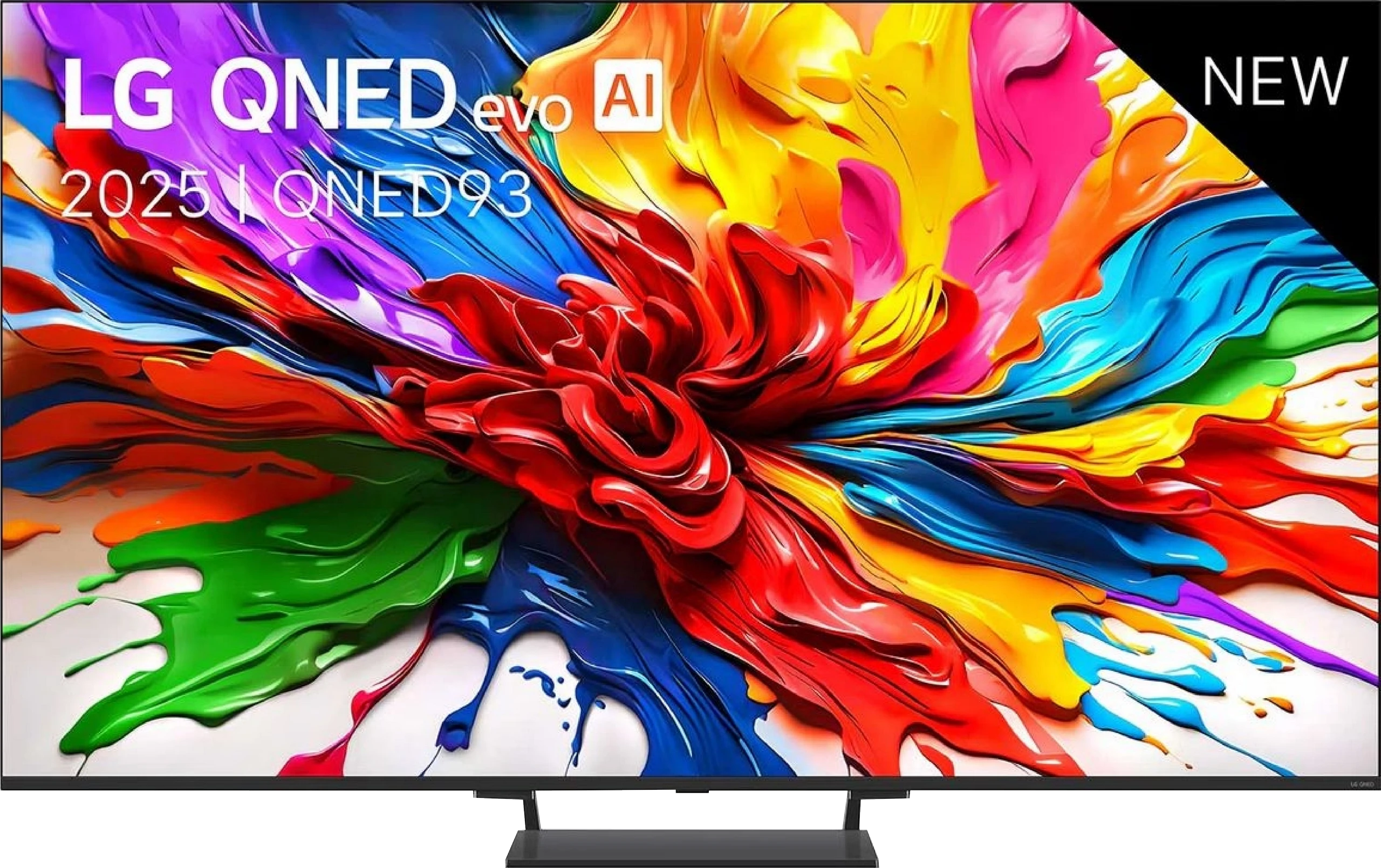
Panel type: WRGB OLED
Resolution: 3840x2160
System: Tizen
Model year: 2024
Complete the survey to find out the result

Panel type: LCD VA
Resolution: 3840x2160
System: WebOS
Model year: 2025
Complete the survey to find out the result

Overall rating
7.8
7.3
Movies and series in UHD quality
7.8
6.8
Classic TV, YouTube
8.6
6.9
Sports broadcasts (TV and apps)
8.4
6.9
Gaming on console
9.4
8.6
TV as a computer monitor
7.6
8.6
Watching in bright light
5.0
6.2
Utility functions
7.4
8.2
Apps
8.7
9.1
Sound quality
7.0
6.9
Complete the survey to find out what fits your preferences
Advantages
Excellent contrast - OLED
Tizen system – fast and intuitive
Solar remote – control of other devices (e.g. decoder)
Outstanding viewing angles – OLED
High motion fluidity – 120 Hz panel
Many features for gamers
Unusual design
Price
Quite good contrast
High number of dimming zones
Good HDR brightness (around 1400 nits)
Wide colour gamut coverage (around 96% DCI-P3)
144 Hz mode and full set of gaming features (HDMI 2.1, VRR, ALLM, G-Sync, FreeSync, HGiG, Game Bar)
Low input lag (7 ms at 120 Hz)
Good compatibility with PC, including 144 Hz and clear fonts,
WebOS with a rich assortment of apps and voice control
Magic Remote
Quite effective upscaling and image processing tools - it will work great for older content such as antenna TV or YouTube
Disadvantages
No recording function from built-in tuners
Average SDR brightness – 310 nits
No support for DTS audio tracks
The local dimming algorithms require refinement
Very average viewing angles
Dolby Vision does not offer a significant improvement over HDR10
Our verdict
The LG QNED93A is a television that, at first glance, appears to be a solid step forward compared to previous LCD models from this brand. On paper, we get quite a lot: a significantly larger number of dimming zones, 144 Hz refresh rate for gamers, support for all HDR formats, including Dolby Vision, and WebOS with a new Magic remote, which remains one of the most convenient control systems. The QNED93A shines particularly in gaming applications. Four full-fledged HDMI 2.1 ports allow for connecting consoles and PCs without any restrictions, and the low input lag remains consistent at both 120 and 60 Hz. For PC users, an additional advantage is the 144 Hz mode and full compatibility with G-Sync and FreeSync. Therefore, it can be confidently said that in terms of gaming features, the QNED93A holds its own against the competition. Another strong point is WebOS. LG's system has long been regarded as one of the most user-friendly in everyday use, and this is confirmed here. Everything is clear, and the Magic remote allows for controlling the television like a mouse pointer – quickly and intuitively. Brightness can also be considered a plus. At its peak, it managed to achieve results close to 1400 nits. This is sufficient for the picture to remain vibrant in brighter rooms, and for special effects in films or games to look convincing. The image processor handles scaling of older content well – television or films in lower resolution appear clearer and sharper than on many competing screens.
However, it cannot be denied that the biggest problem with the QNED93A lies in the local dimming algorithms. In scenes full of black, the screen can dim significantly, causing many details to simply disappear. The effect is such that contrast appears better at first glance, but at the cost of information that should be visible. An additional problem is the Dolby Vision mode, which usually improves certain aspects of screens, yet in this case, it makes little difference. The differences between dynamic and static metadata literally have to be searched for with a magnifying glass. This is simply disappointing because the hardware itself, with its number of dimming zones and stronger backlighting, provides grounds for a better result. So, who is the LG QNED93A for? It is a television that works excellently as a home entertainment centre, especially if you're considering gaming on a console or PC. In everyday television viewing and films in well-lit conditions, it also delivers a lot of satisfaction due to its high brightness and decent image processor. However, one must accept that in scenes with a lot of black and full HDR utilisation, this model does not match its competitors. LG has shown that it can create a very solid LCD screen, but it is also evident that not everything has been refined as well as in their OLED televisions.
TV appearance







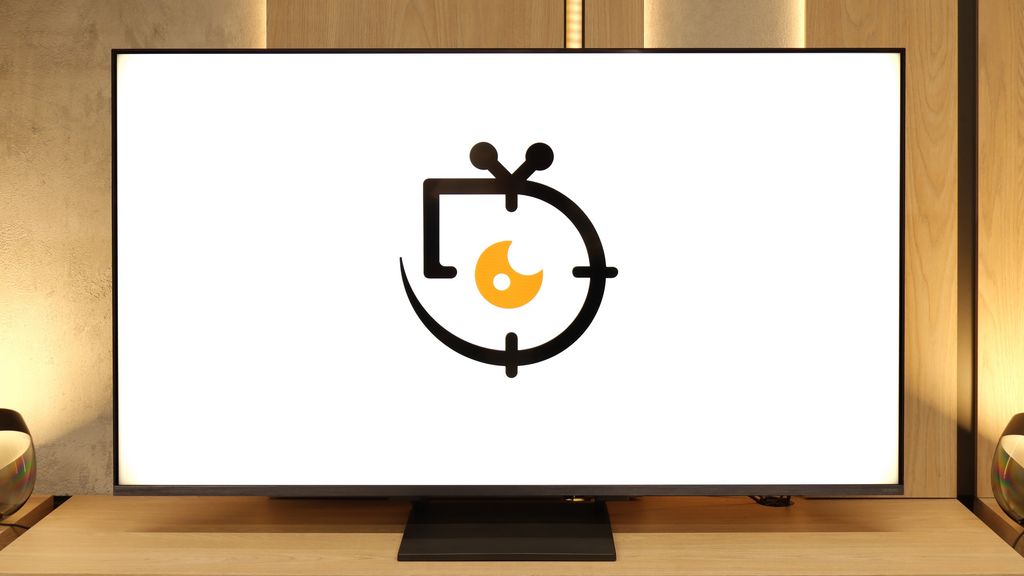
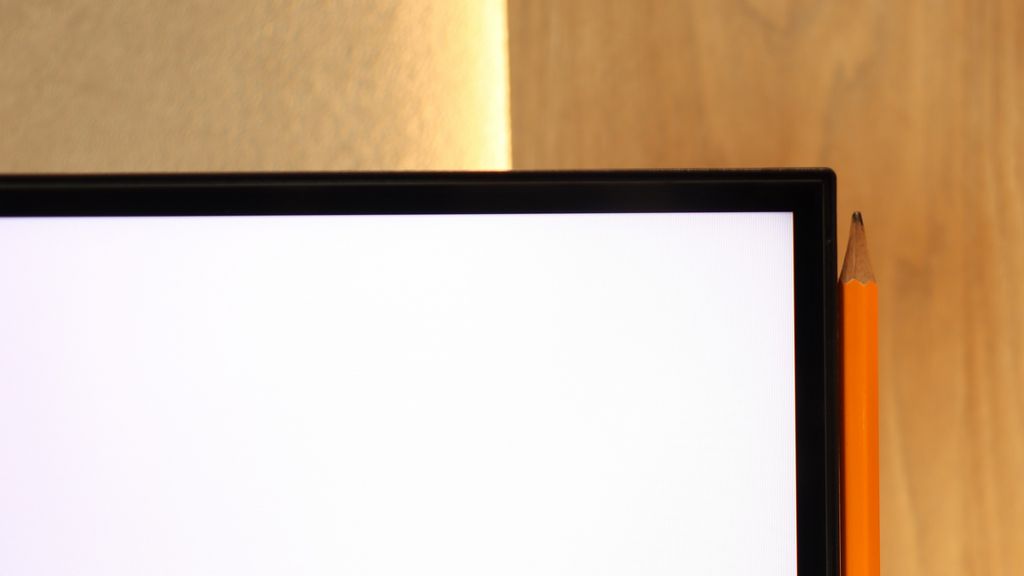
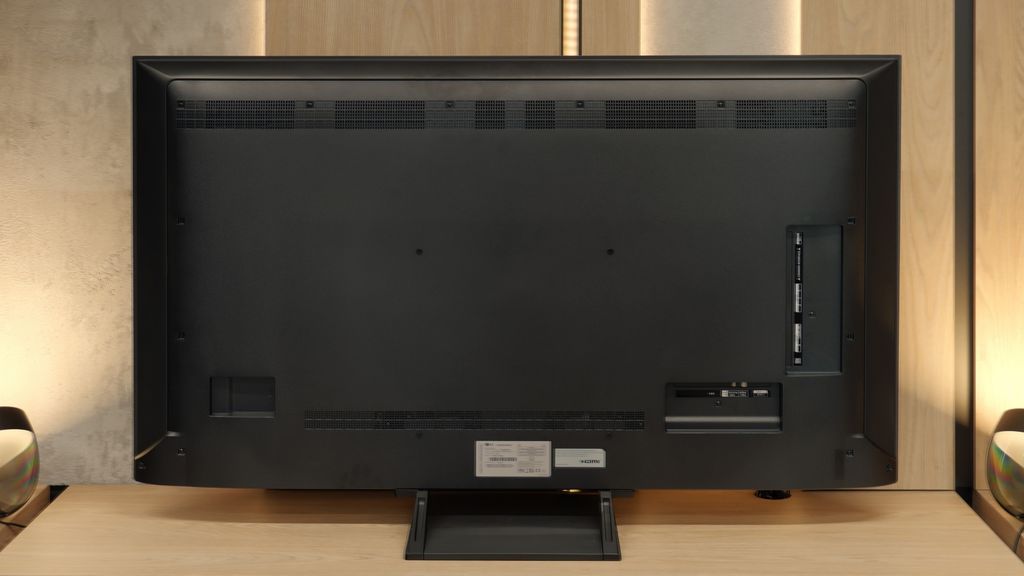
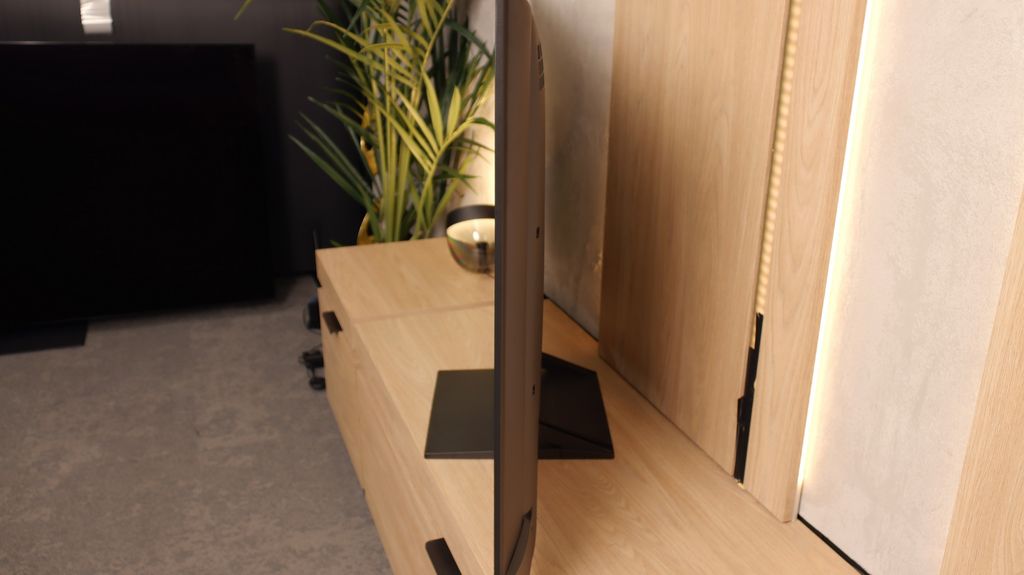
Contrast and black detail
10/10
7.3/10
Local dimming function: Yes, number of zones: 308 (14 x 22)
Contrast:
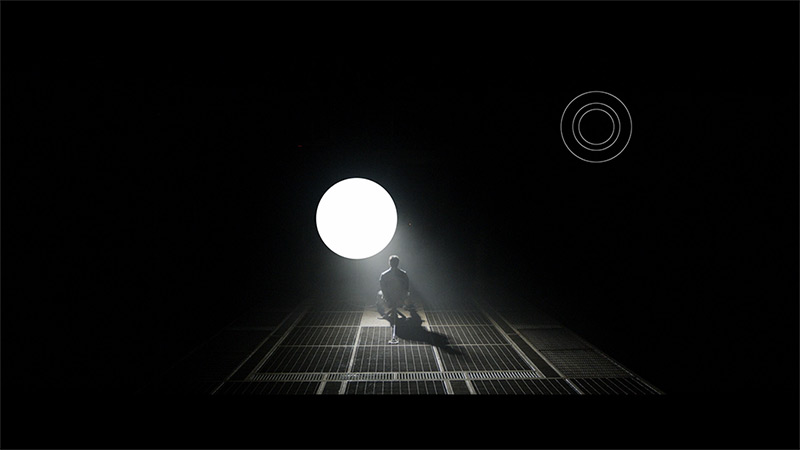
Result
∞:1
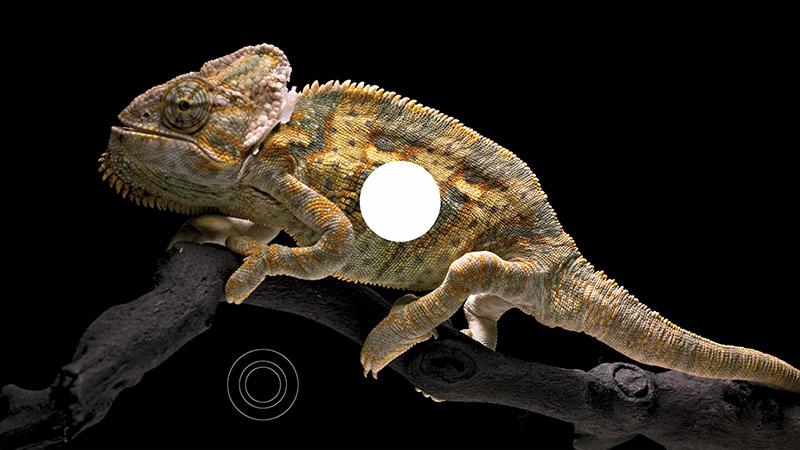
Result
∞:1
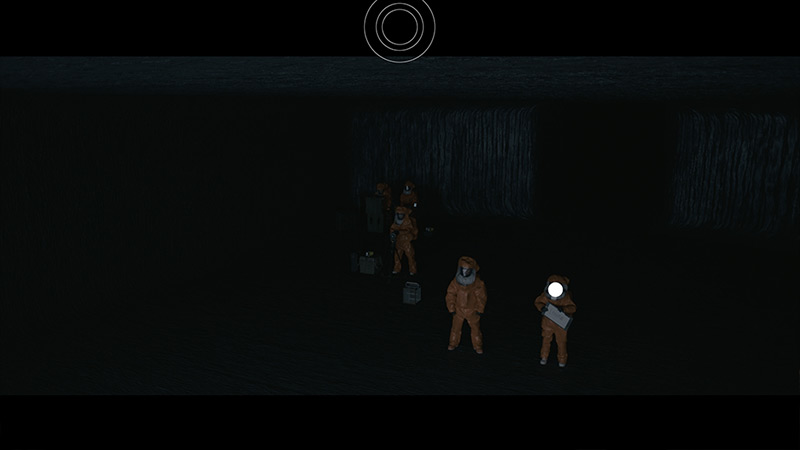
Result
∞:1

Result
∞:1
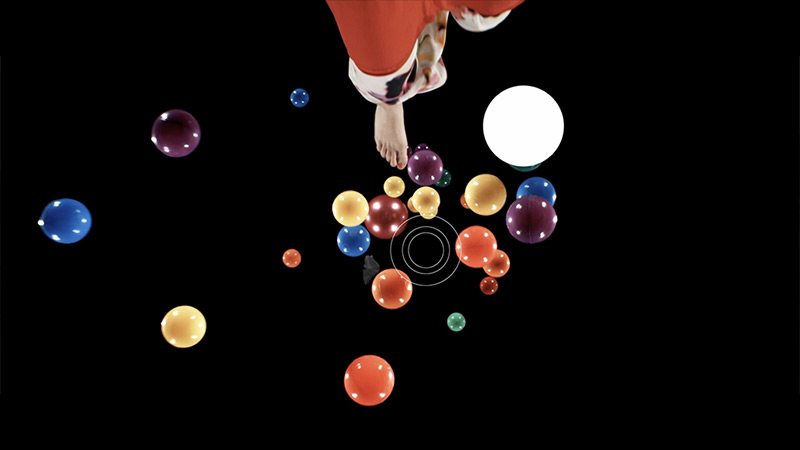
Result
∞:1

Result
130,500:1

Result
30,950:1

Result
15,250:1

Result
6,750:1

Result
4,600:1
Halo effect and black detail visibility:

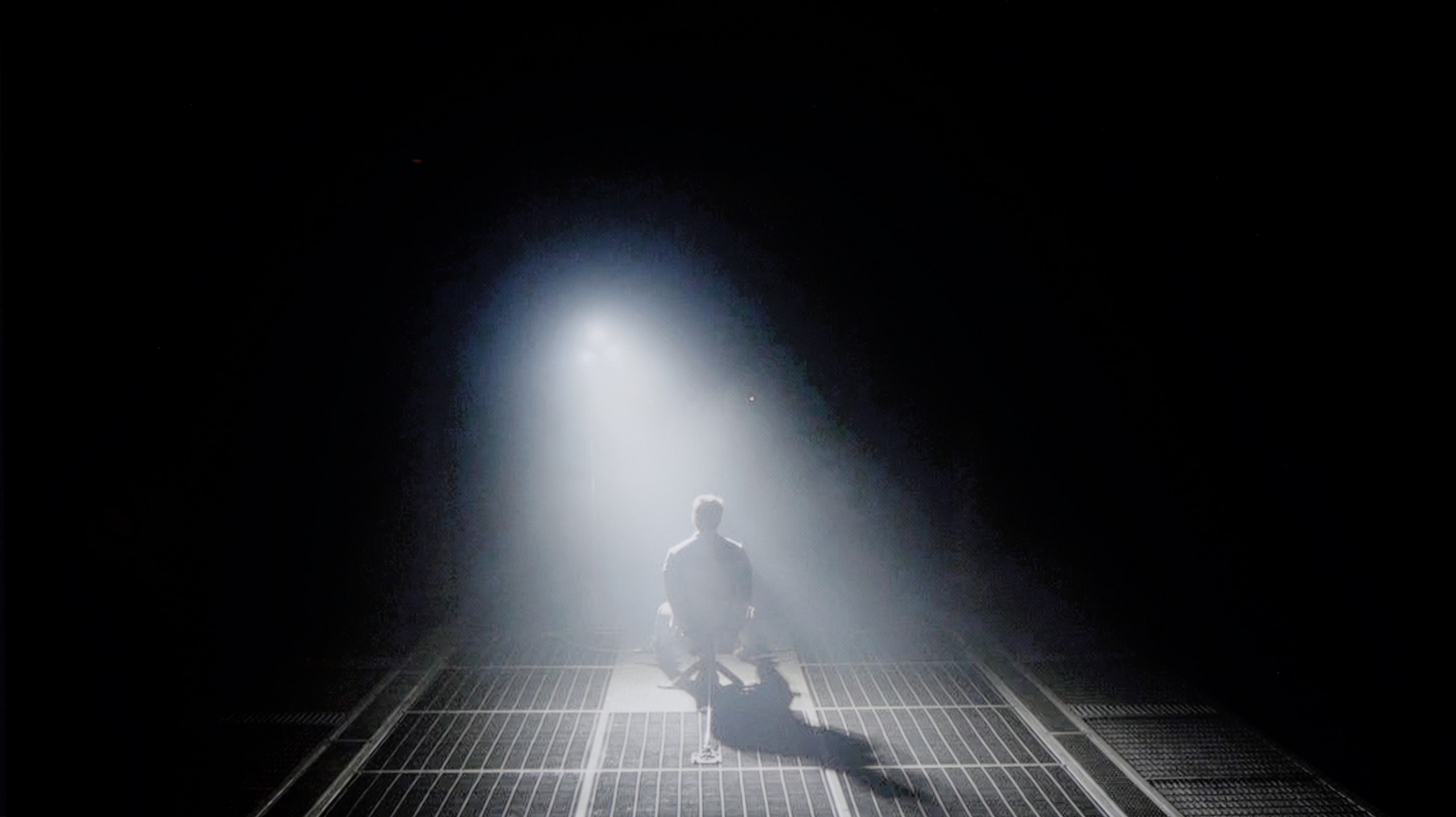
Samsung S85D is a television that truly makes a difference when it comes to picture quality. The black is so deep it's hard to believe, and the contrast ensures that even the most demanding scenes – like those from the film "Oblivion" – look incredibly realistic. Thanks to OLED technology, the dark areas of the screen are perfectly black, without any unnecessary glow or overexposure.
It's worth noting that, similar to some variants of the S90D model, the Samsung S85D uses a WOLED panel supplied by LG. This panel is a key element that contributes to the amazing quality of contrast, which is particularly noticeable in scenes with a high dynamic range of light, making it an ideal choice for fans of films and series with high production quality.
We examined the 55-inch version of the LG QNED93A, equipped with a high-contrast VA panel. However, in the case of Mini-LED televisions, it is not just the panel itself, but primarily the number and operation of local dimming zones that determine the final effect. In this model, we counted as many as 308 zones, which already looks impressive from the start. For comparison, last year's QNED91T in the 65-inch variant had only about 160. The difference is enormous and shows that LG has made a serious step forward in this technology. On paper, it looks great, but practice quickly cools the enthusiasm. The contrast in the QNED93A can indeed be impressive – bright elements are clearly separated from blacks, and in many scenes, the depth of the image truly pleases the eye. The problem is that despite such a significant improvement in the backlighting design, the results are not much better than in last year's model. The algorithms controlling the dimming can be too aggressive. This is especially noticeable in darker sequences, where the screen dims to such an extent that subtle details disappear from view. Many viewers will appreciate the deeper blacks, but it is hard not to notice that this comes at the expense of the director's intentions. The most problematic are scenes with many small, bright elements. It is then that the typical halo effects, meaning glowing outlines, characteristic of LCD with local dimming zones appear around them. This phenomenon does not completely ruin the experience, but it reminds us that even with an increased number of zones, local dimming still has its limitations. Ultimately, the contrast in the QNED93A can be considered good, but we have the impression that the manufacturer did not pay enough attention to optimising the new model in terms of blacks and contrast.
HDR effect quality
5.7/10
5.8/10
Luminance measurements in HDR:

Result
570 nit
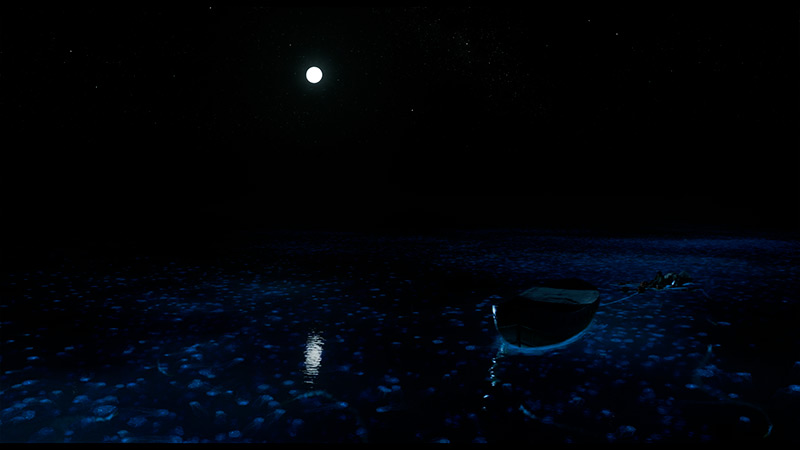
Result
580 nit
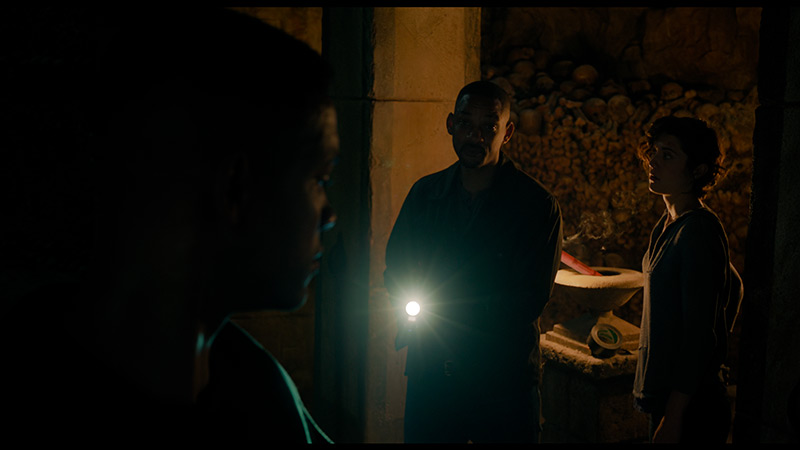
Result
666 nit
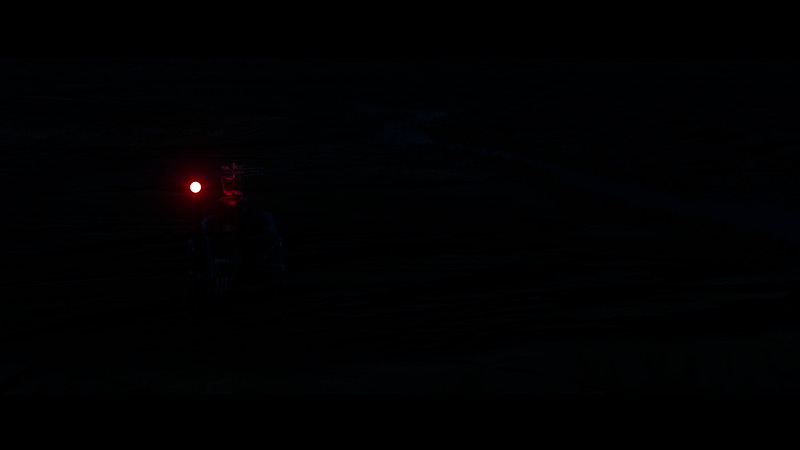
Result
629 nit

Result
283 nit

Result
1330 nit

Result
219 nit

Result
678 nit

Result
160 nit

Result
1016 nit
Scene from the movie “Pan” (about 2800 nits)


Scene from the movie “Billy Lynn” (about 1100 nits)

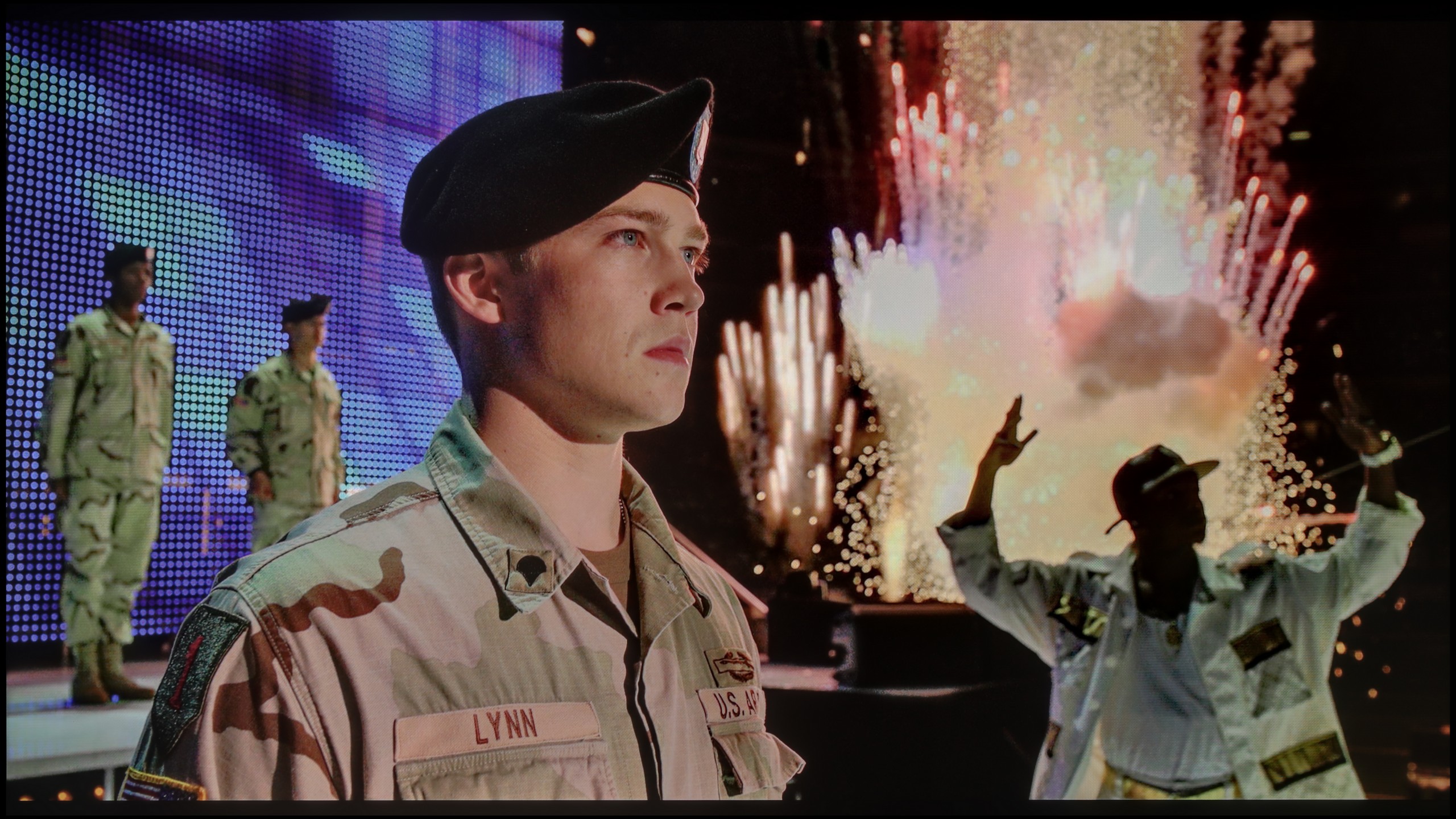
Static HDR10


Dynamic: HDR10+
Dynamic: Dolby Vision


HDR luminance chart:
LG QNED93A / QNED90A
HDR luminance
Samsung S85D
HDR luminance
Luminance of RGB colors
Brightness is a key parameter in televisions, and the S85D Samsung model offers levels comparable to other OLEDs from a few years ago. Although it does not impress in this regard, its enormous advantage is the very competitive price. A peak brightness of 600 nits ensures good image quality in HDR conditions, giving users a taste of cinematic experiences in the comfort of their home. However, as with many budget OLED models, the biggest issue is very bright, full-screen scenes – in such moments, like the final scene from the film “The Meg,” the television can lose even half of its brightness, which is noticeable compared to more expensive OLED models. Despite this, the television offers impressive coverage of the DCI-P3 colour palette at 99%, allowing for vibrant and accurate colours to be displayed.
Although the number of local dimming zones in the LG QNED93A has not directly translated to noticeably better contrast, it is hard to deny one thing about this model – it is brighter than its predecessor. In synthetic tests, we recorded values around 1400-1500 nits, and more importantly, these results are reflected in real film scenes. In full-screen sequences flooded with white or bright lights, the screen could maintain high luminance, which created a truly decent amazing HDR effect. Unfortunately, where the television could showcase true class, that is in scenes requiring precision, all the magic dissipates. The dimming algorithms, which we mentioned earlier, operate so aggressively that small bright objects – such as distant lights, stars, or the moon – can almost completely disappear. A glance at the test scenes from the film Pan or Sicario 2 (screens 2 and 4) shows how subtle details are dimmed to the limits of their visibility. It's a pity, as a greater number of zones could theoretically have led to significantly better results. Fortunately, there are also strengths. The QNED93A performs well in terms of colour gamut coverage, achieving around 96% of the DCI-P3 standard. As a result, colours in films appear vivid and full, and the picture does not lose intensity even in more demanding scenes. Therefore, one could say that the HDR in this model is solid, although the underdeveloped local dimming algorithms hinder its full potential.
Factory color reproduction
6.6/10
6/10


Factory Mode
After calibration
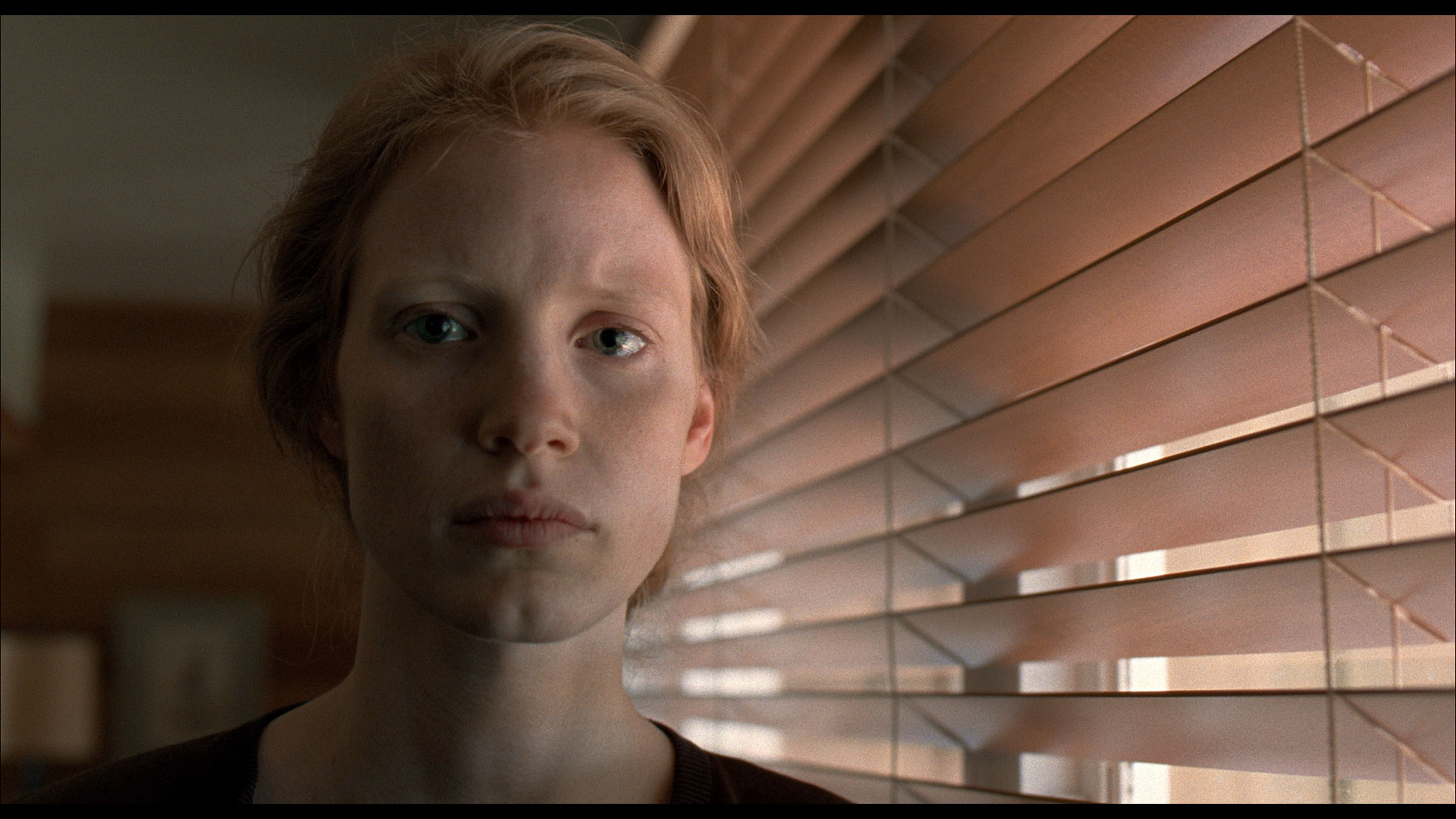
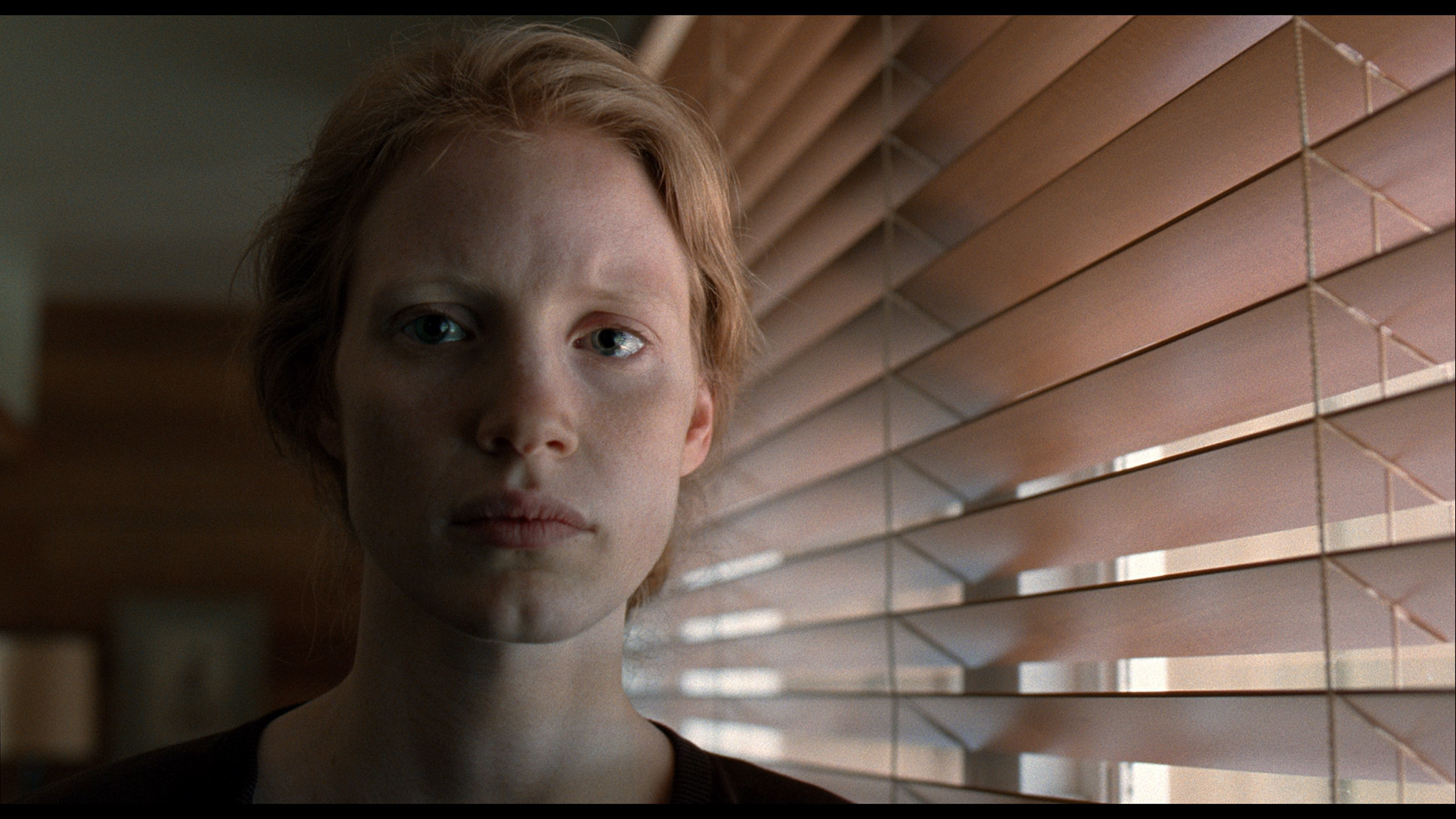
Factory Mode
After calibration
The Filmmaker mode on the Samsung S85D does offer quite good factory settings, but it is not free from errors, particularly evident in colour reproduction. The white balance chart for HD and HDR content shows clear issues – both red and blue colours are significantly weakened, leading to a dominance of green. The result is an unnatural yellowish hue that can affect the perception of realistic scenes. The Color Checker test clearly shows that the colour samples deviate from expected values – for HD material, the colours can be overly saturated, with a noticeable shift towards green, which is also evident in the white balance chart. Conversely, for 4K HDR content, the colours appear too dull, lacking depth, making the image less appealing and natural. This effect is particularly noticeable in delicate scenes where colour precision plays a key role, which can be disappointing for discerning viewers who expect faithful reproduction of details and colour intensity.
As for brightness, the gamma chart for HD content looks quite good; however, there is a noticeable jump at the end, exceeding a value of 2.4. While this is not a major issue in most scenes, in more demanding sequences it may affect the clarity of bright details. For 4K content, the EOTF curve, responsible for delivering brightness, turns out to be problematic. The initial part of the chart shows a small jump. This phenomenon can result in excessive boosting of brightness in the brightest areas of the image, leading to loss of detail in very bright scenes.
Although Samsung S85D offers quite decent factory settings, especially in Filmmaker mode, it is worth considering manual adjustment of settings to improve some imperfections, particularly in colour reproduction.
In filmmaker mode, the colour reproduction on the QNED93A was relatively accurate, although there were some reservations. In SDR content, the white balance was shifted towards warmer tones, which gave the screen a slight yellowish tint overall. The gamma, in turn, led to a slight brightness increase, making the image appear somewhat less natural, especially in scenes requiring precise shading (this is clearly visible in the comparison photo). This is not a problem that immediately stands out to every viewer, but more discerning individuals may feel that the image deviates from the aesthetics intended by the filmmakers. In HDR materials, the situation was somewhat different. The white balance, in this case, was quite good, ensuring that the whites neither leaned towards pink nor unwanted green hues. However, managing brightness turned out to be an issue. An analysis of the EOTF curve revealed that at certain moments, the television could be noticeably too dark where it shouldn't be, losing some detail and lowering the realism of the scenes. This spoiled the reception of HDR effects, which were theoretically supposed to make the biggest impression. For this reason, we decided to carry out calibration.
Color reproduction after calibration
8.7/10
7.8/10

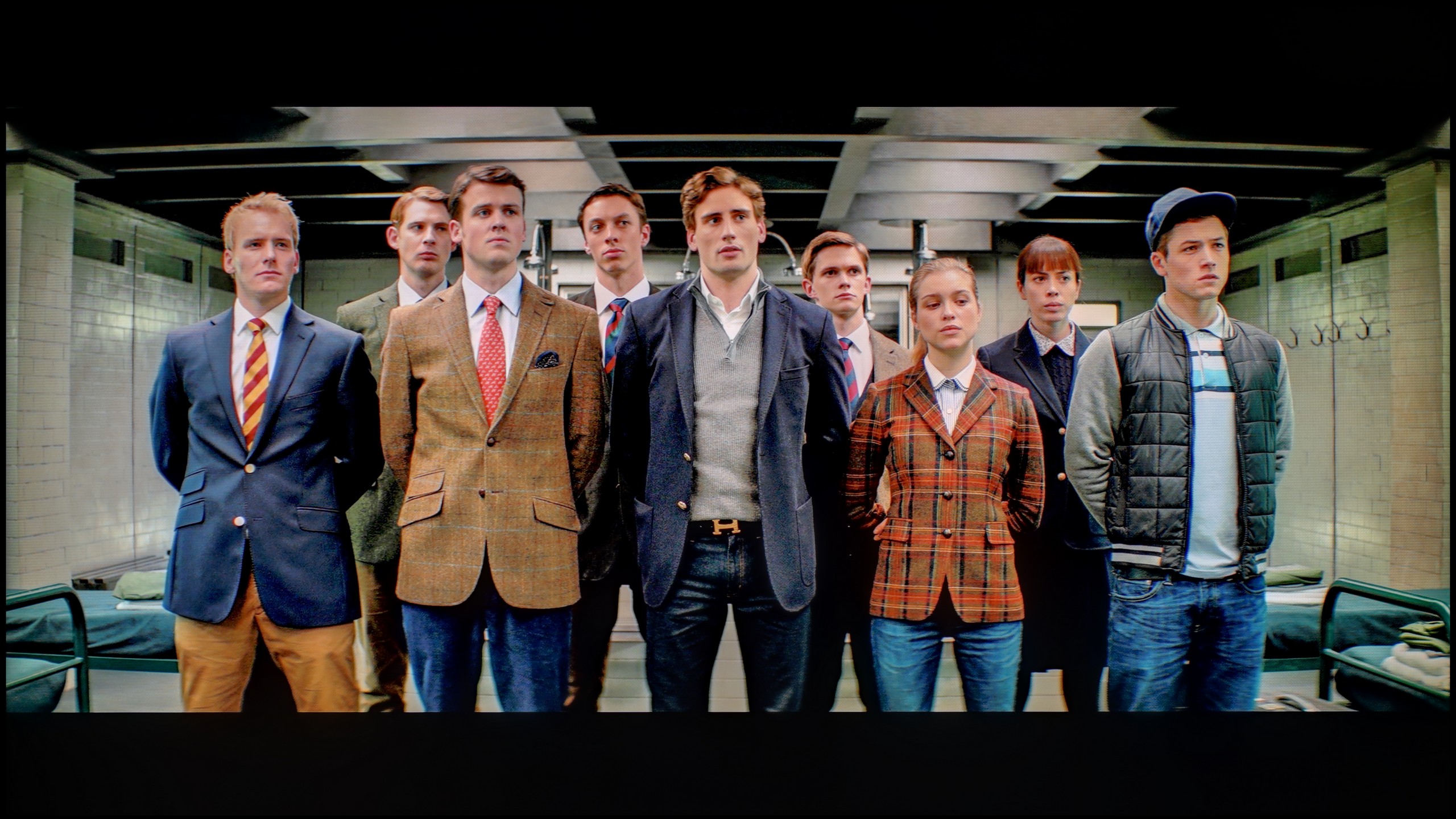

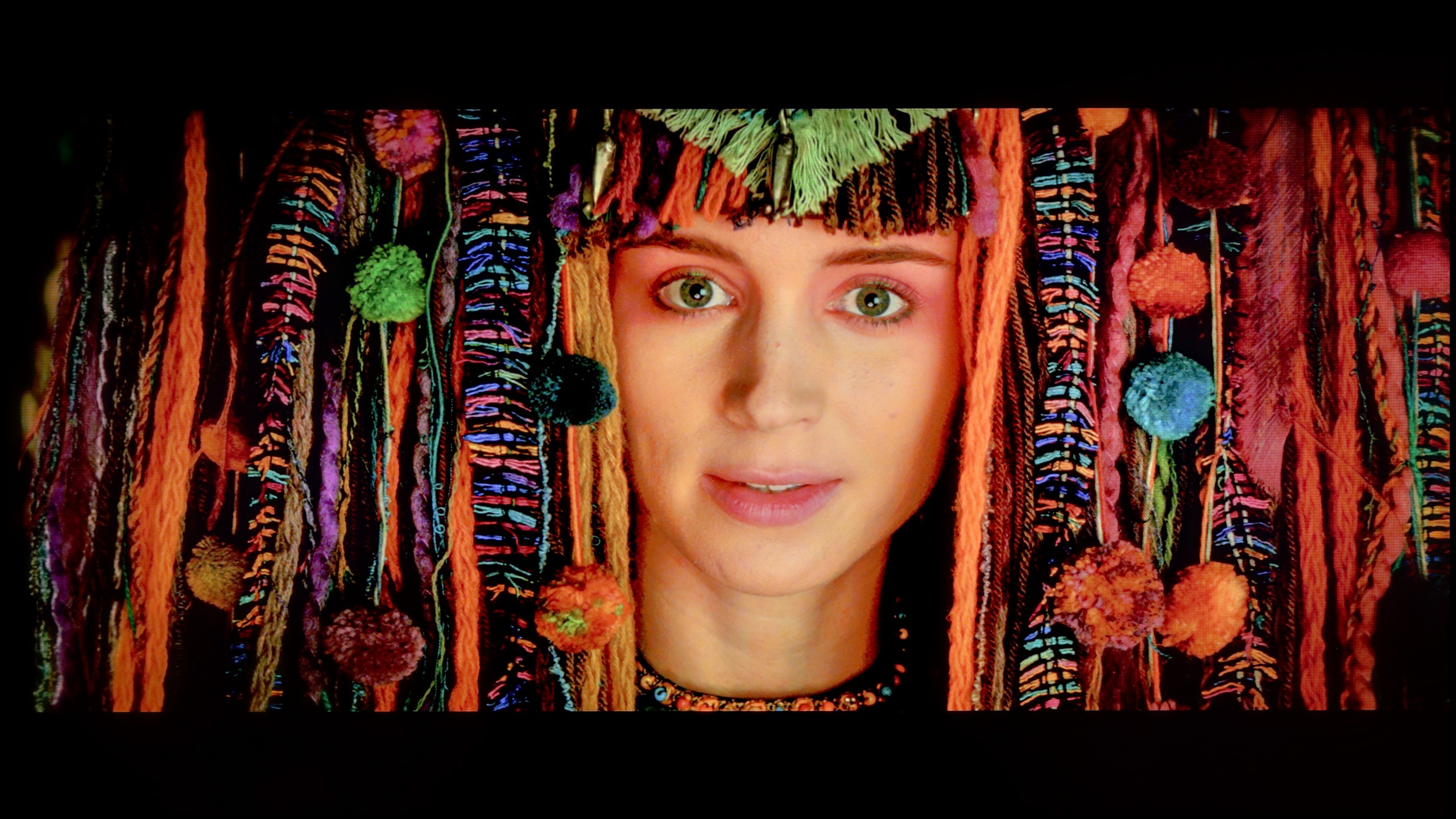
After calibration, the Filmmaker mode on the Samsung S85D truly impressed. The white balance, regardless of the type of content, has significantly improved, resulting in more natural colours. The Color Checker test shows that colour reproduction errors are now minimal and rarely exceed acceptable values, which indicates accurate colour rendering. The factory colour reproduction left much to be desired, but the situation has now significantly improved – the colours are natural, precise, and look as if they were rendered exactly according to the creators' intentions. This is a huge step forward compared to previous generations, where colours were often distorted or too intense.
The brightness characteristics also benefited from the calibration – it is now more vivid and precise. The gamma, although fairly good previously, has become even more stable, providing a deeper, more natural image. The EOTF curve has been aligned, allowing details in dark areas to be more visible and the contrast more balanced. With all these improvements, the television delivers an image close to reference quality, greatly enhancing the enjoyment of watching films and HDR content.
After professional calibration, the Filmmaker mode on the QNED93A has improved primarily in areas that matter most on a daily basis. We managed to correct the white balance and eliminate the yellowish tint in SDR content, which is what we watch most often – television, streaming services, or standard quality films. As a result, the colours look natural and pleasant, making the overall experience much more comfortable. We also made adjustments in HDR mode, but here the biggest issue turned out to be the EOTF curve. Although LG offers some flexibility in the settings, the television still manages brightness on its own terms. It is evident that the local dimming algorithms are not fully refined and can ruin the viewing experience by darkening parts of the image at inappropriate times. Nevertheless, it is worth opting for calibration of this model, especially the mode intended for everyday viewing.
Smoothness of tonal transitions
7.2/10
8/10





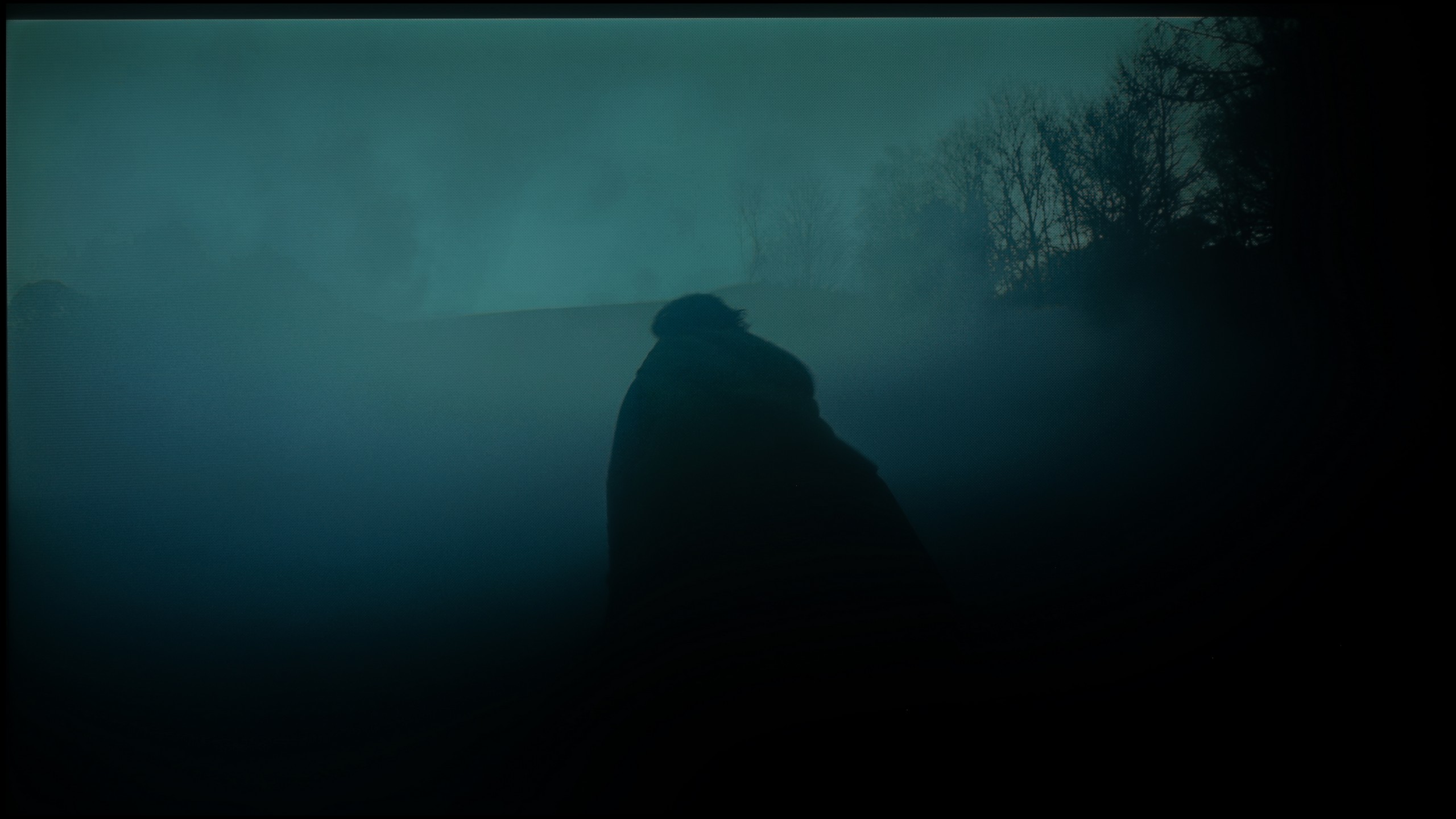






Samsung OLED S85D performs very well with the smoothness of tonal transitions. There are no major issues, and the transitions between different colour levels are smooth and natural. The only minor drawback is slight issues around the reds, where in some scenes, subtle disturbances can be noticed. Nevertheless, the overall effect is very positive – the television handles most materials excellently.
The fluidity of tonal transitions in the LG QNED93A is truly impressive. In most scenes, there are no artificial colour separations or banding effects visible. The dark shots are particularly surprising in a positive way – it is precisely in these that many televisions struggle, yet here the image remains smooth and coherent. In brighter segments, one can note subtle colour blending, however, they are not pronounced enough to significantly distract the viewer. During testing, we encountered a clear issue with DSE, or the so-called "dirty screen" effect. On our unit, the phenomenon was strong enough that in bright scenes, the corners visibly darkened, giving the impression of vignetting. This may be a flaw of the test unit, but during intense viewing, we found it hard to overlook.
Image scaling and smoothness of tonal transitions
7.4/10
7.8/10
Smooth transition function

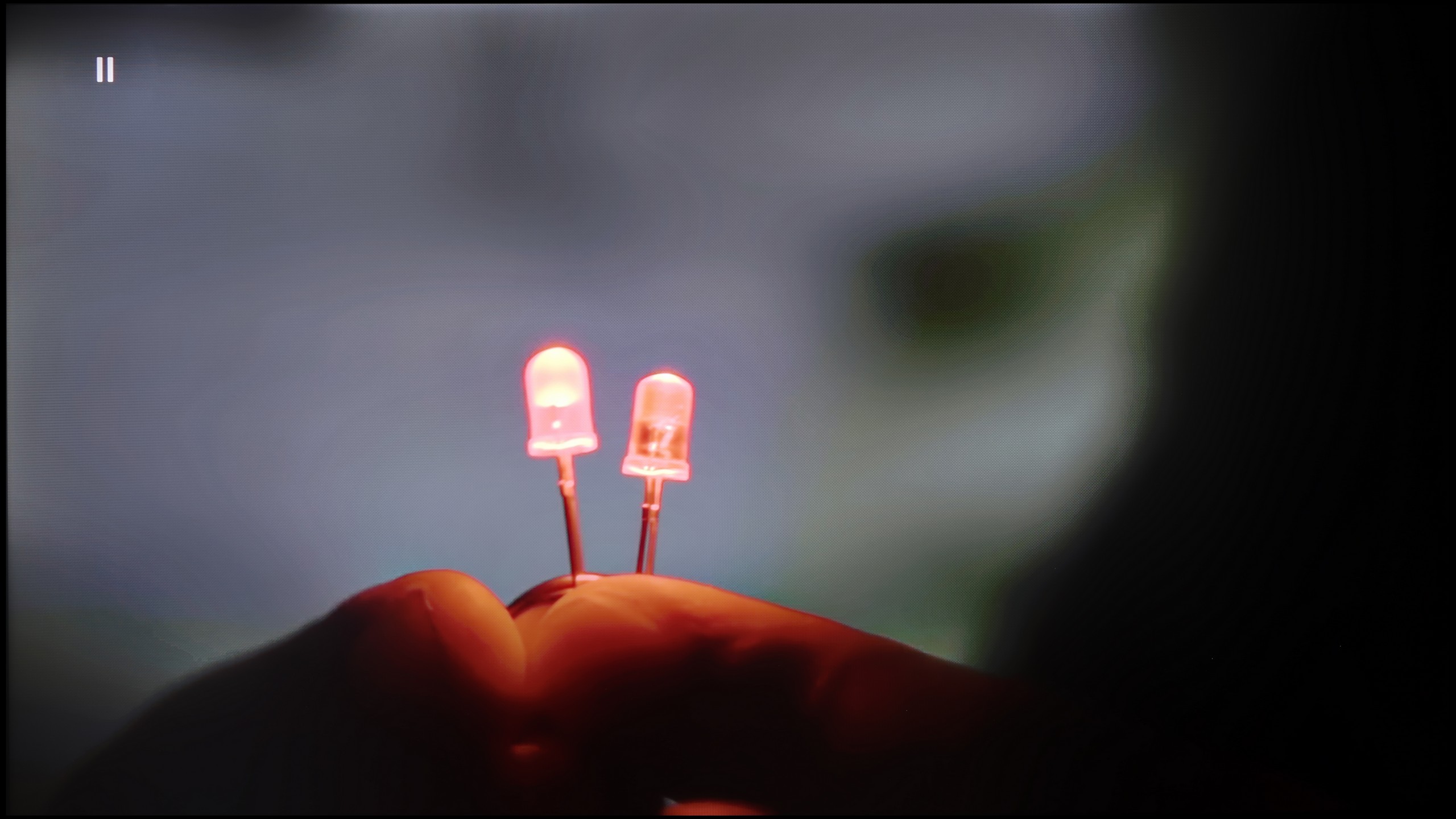
Image without overscan on the SD signal


Samsung S85D performs excellently in scaling images and smoothing tonal transitions. Like in other Samsung models, the television offers three noise reduction modes: off, standard, and high. Although it effectively improves gradations, it unfortunately also removes film grain, which many viewers desire to give the image a cinematic character. This grain often adds authenticity and a certain rawness to films, which is lost after smoothing. Removing the grain can make the image look too sterile and smooth, which detracts from the charm of the original film material. When it comes to scaling images, the Samsung S85D handles lower resolution content beautifully – the model in the picture and the branches in the background were displayed correctly, with no major issues with edge aliasing. The only noticeable drawback is the presence of overscan, which can sometimes cut off parts of the image, which may not please everyone.
The LG QNED93A proves to be a very solid television for everyday use. Its image processor handles scaling extremely well, which means even older films or terrestrial television benefit from increased sharpness and detail. During the screening of "The Godfather," it is clearly visible how upscaling retrieves additional details from the image – the faces of the characters and the texture of their clothing appear much clearer than in the original material.
The digital image processing also deserves praise. The television is equipped with a function for reducing unwanted colour banding and screen irregularities. It works best in the "Medium" setting – subtly smoothing tonal transitions without excessively interfering with the image. As a result, the natural film grain is preserved, and the screen does not appear artificially smooth. It is possible that in some scenes slight colour banding can still be observed, but in practice, the effect is more beneficial than with a stronger intervention from the algorithm.
Blur and motion smoothness
8.5/10
7.9/10

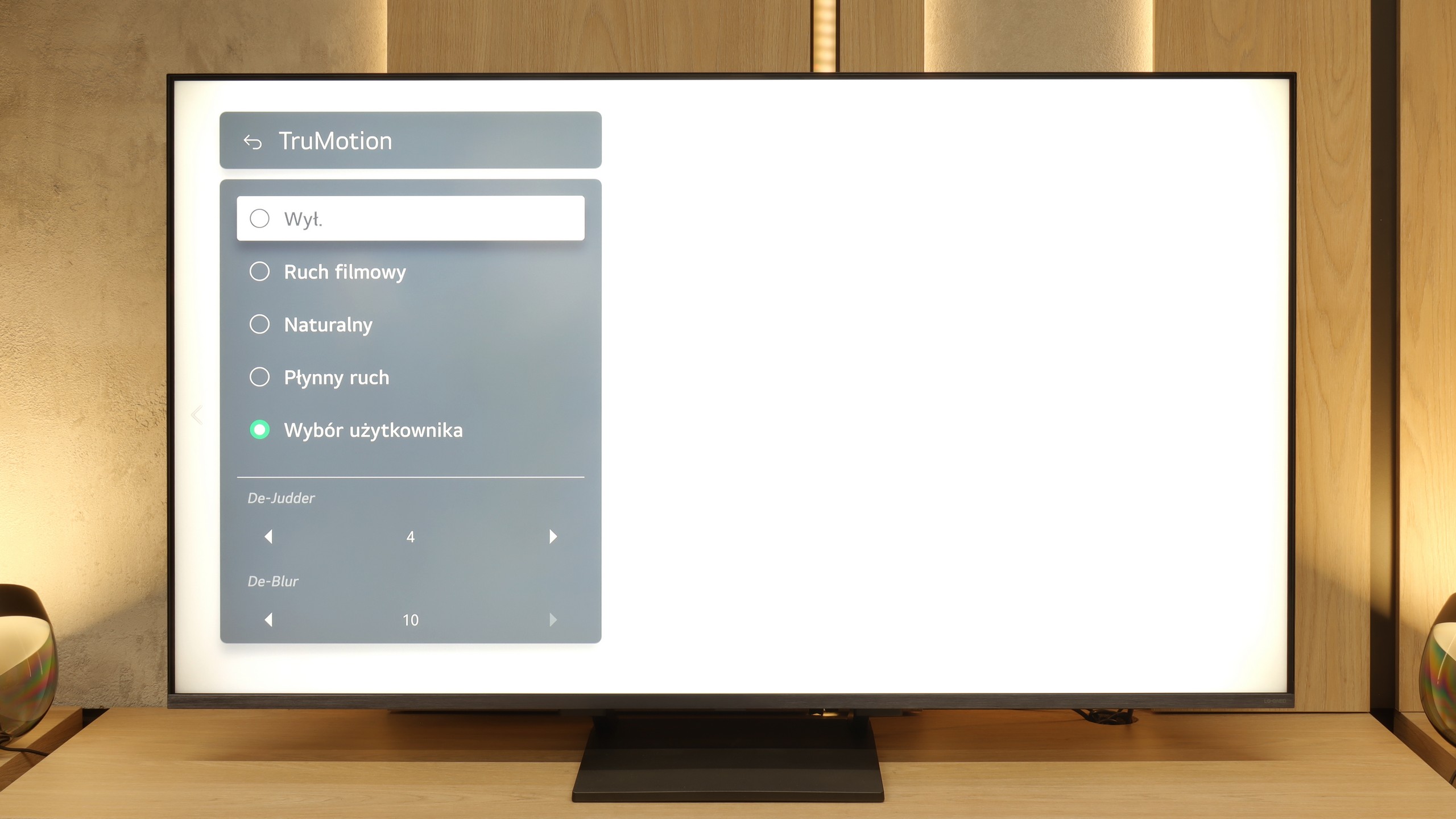
Blur (native resolution, maximum refresh rate):




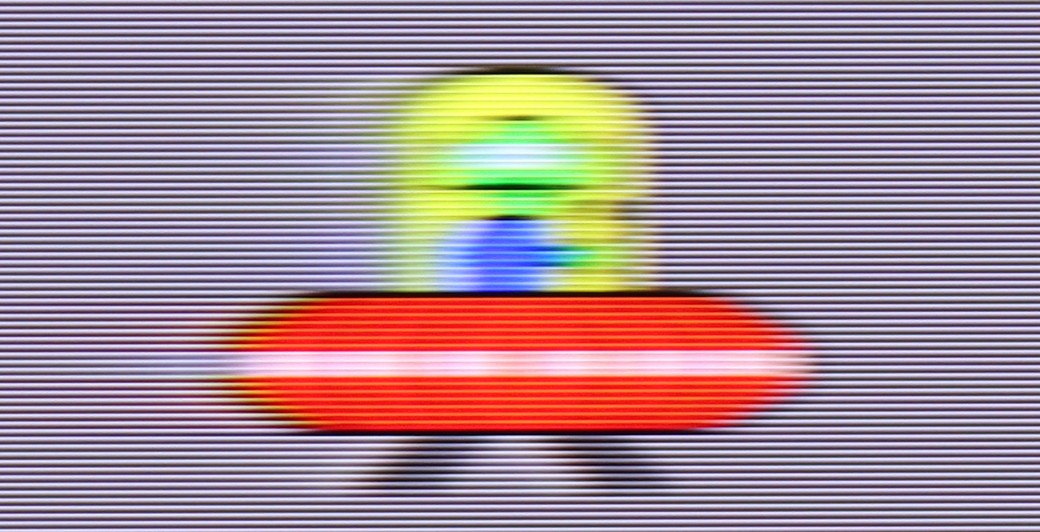
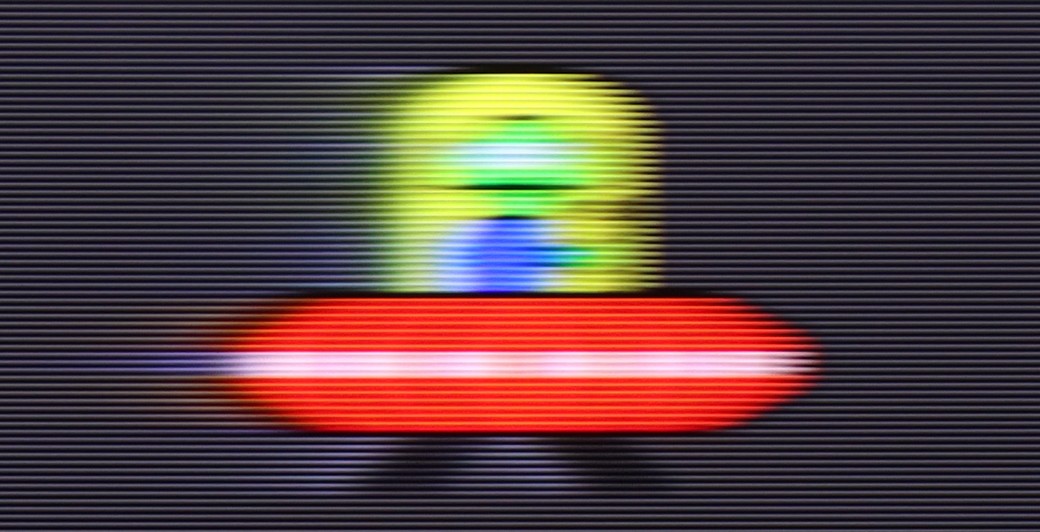
Blur (BFI function enabled):
Image flickers in this mode
Image flickers in this mode



Smużenie ():
Smużenie (4K@144Hz):

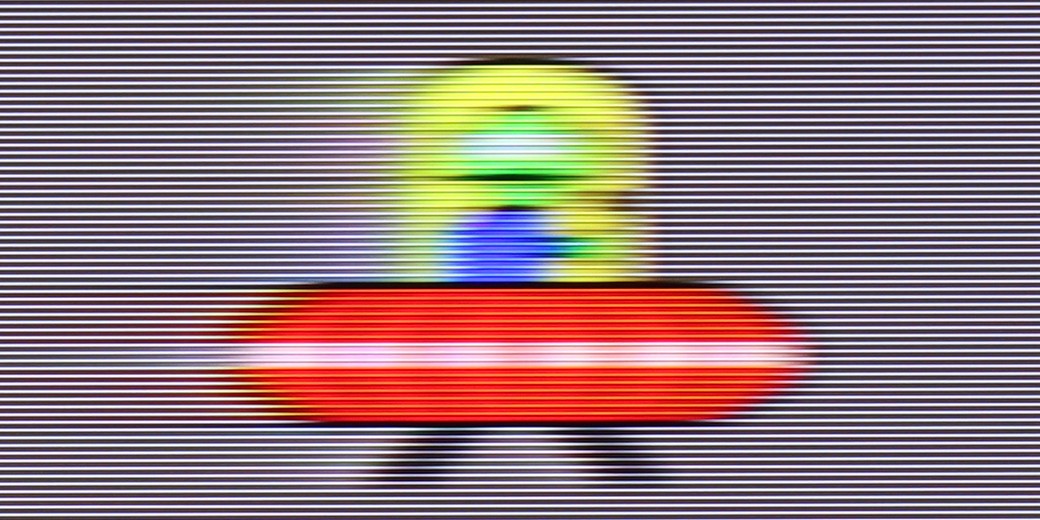
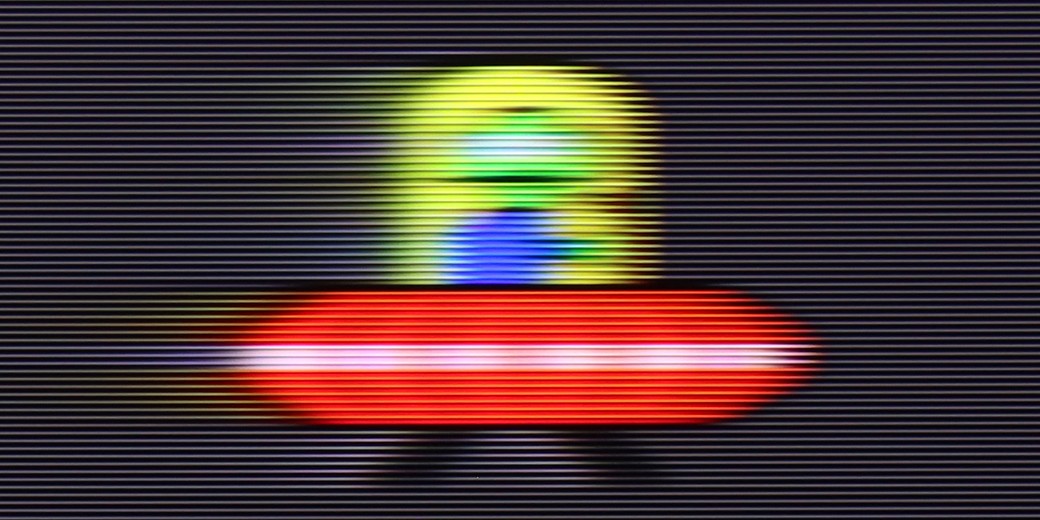
As befits an OLED television, Samsung S85D offers excellent motion fluidity. Equipped with a 120 Hz panel and fast response time, the television provides very smooth playback of dynamic scenes without visible ghosting. For movie enthusiasts, there is a feature called "Image Clarity Settings," which allows adjusting the fluidity of the image to individual preferences on a 10-point scale. Motion blur reduction enhances the sharpness of rapidly moving objects, while motion smoothing smooths out movement, eliminating the "judder" effect. This way, every user can set the appropriate level of clarity that best suits their taste, from a more cinematic effect to sharper, smoother movements.
The LG QNED93A is equipped with a 144 Hz panel. This is primarily a nod to gamers, but the fact that higher refresh rates are increasingly making their way into televisions can be viewed positively. In everyday viewing, 120 Hz remains key, and in this respect, the QNED93A performs well. The manufacturer also provides the option to adjust the picture using the TruMotion system – the De-Judder and De-Blur sliders allow you to choose between a cinematic motion character with visible frames and a complete smoothing with theatrical motion.
Console compatibility and gaming features
9.5/10
9.8/10
- ALLM
- VRR
- VRR range48 - 120Hz48 - 144Hz
- Dolby Vision Game Mode
- Correct implementation of HGIG
- 1080p@120Hz
- 1440p@120Hz
- 4K@120Hz
- Game bar

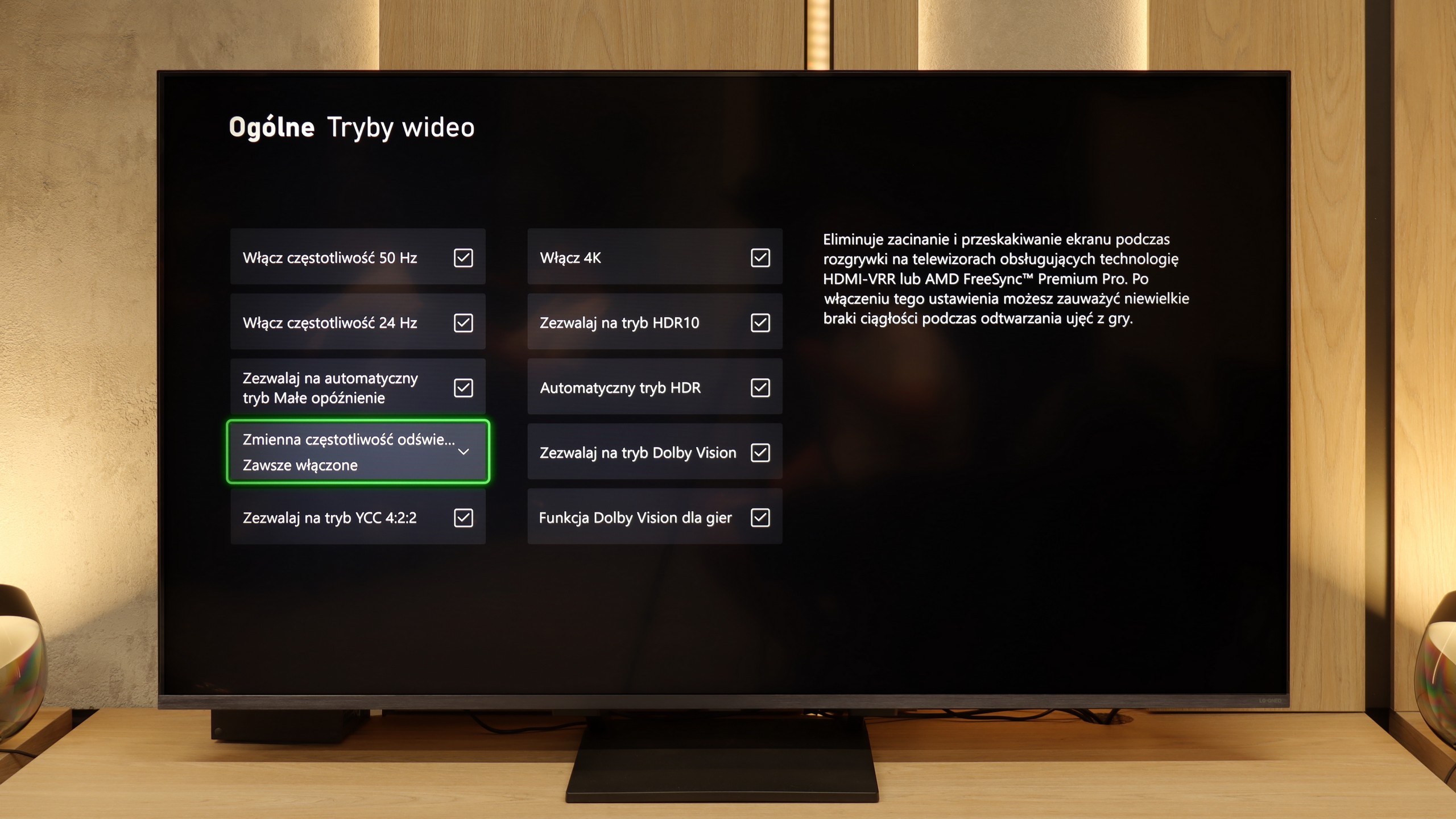

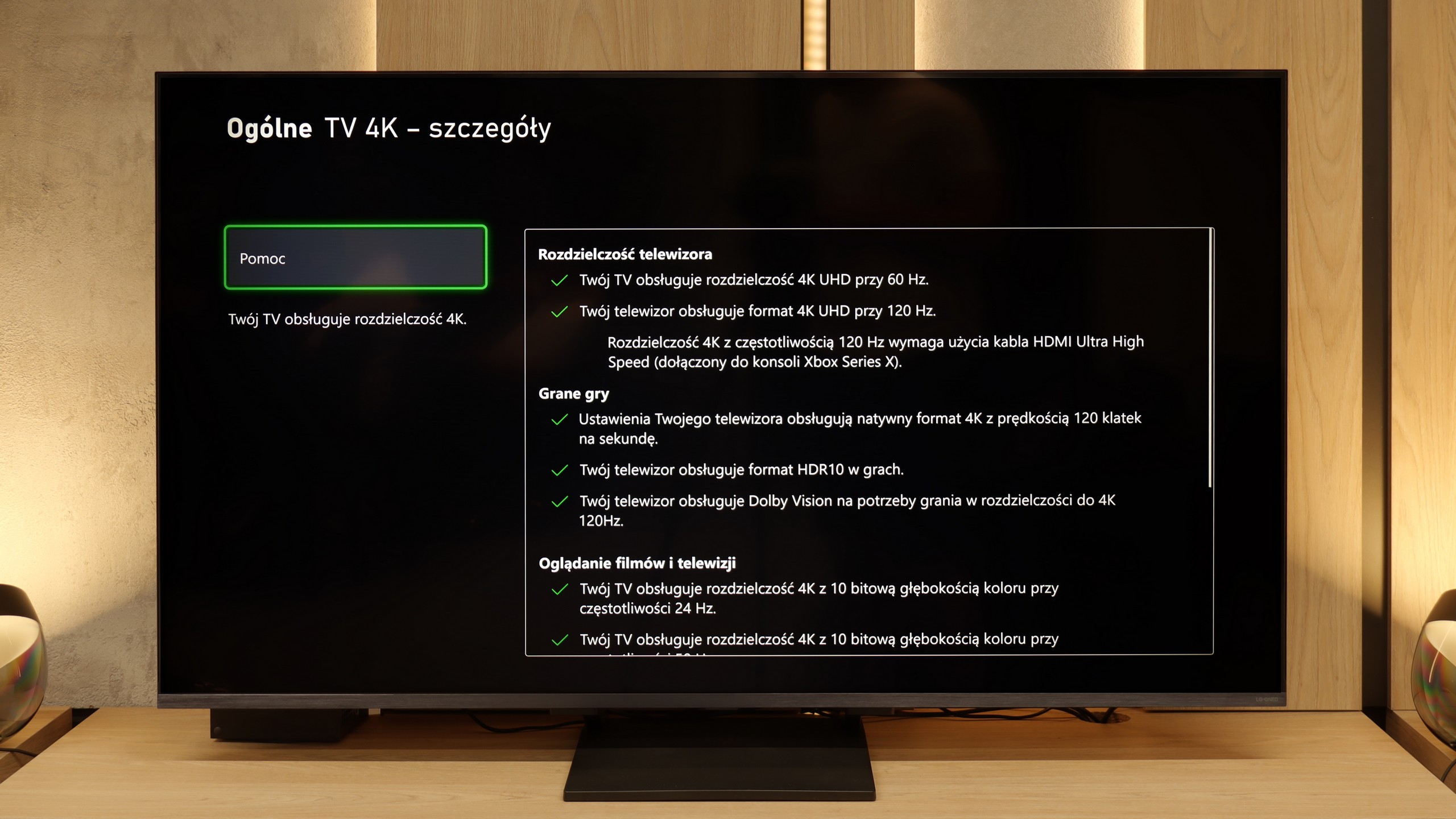

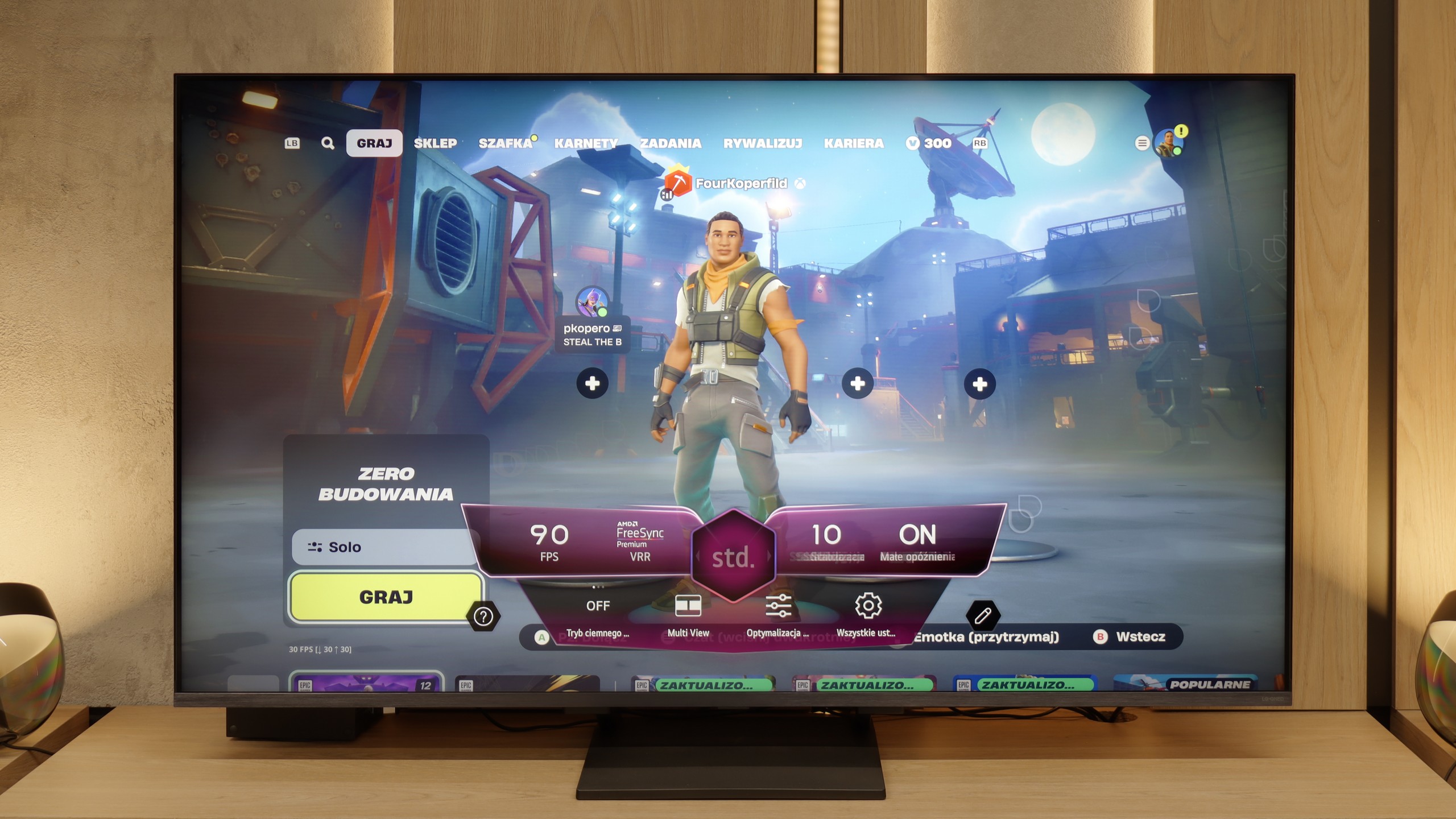

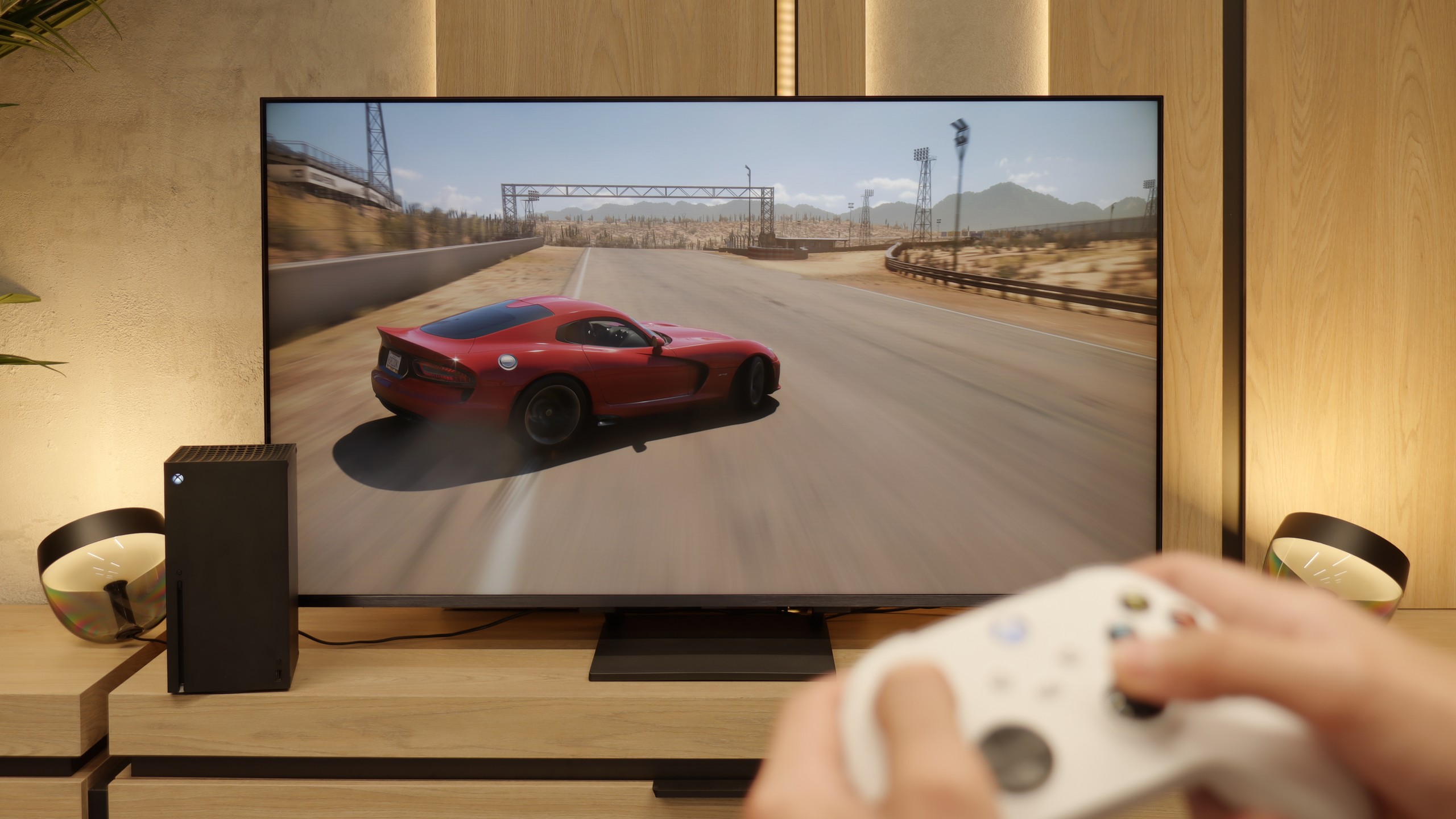
Samsung S85D OLED is an excellent choice for gamers, thanks to its many modern features that facilitate and enhance gameplay. The television has four full-bandwidth HDMI 2.1 ports, allowing you to connect the latest consoles without worrying about image quality or frame rate limitations. This means support for 4K resolution at 120 Hz, which is ideal for modern titles. Additionally, the Samsung S85D has an ALLM (Auto Low Latency Mode) feature that automatically activates low latency mode when it detects a gaming device. This means you don’t have to manually switch settings – the television takes care of ensuring a fast response time, which is crucial in games where every second counts.
The VRR (Variable Refresh Rate) feature and G-Sync support are additional elements that make gameplay smoother. VRR adjusts the refresh rate to the number of frames generated by the console or computer, eliminating screen tearing and stuttering. This is particularly useful in dynamic games where the frame rate can fluctuate. Auto Motion Plus Game is a feature that Samsung has introduced with gamers in mind, and it is worth appreciating. With it, the image in games becomes smoother – 30 frames per second look like 45, and 60 Hz gains in fluidity, creating an effect close to 90 Hz. At the same time, there is no significant increase in input lag, which remains below 25 ms, making this feature stand out among others available on the market. Gamers can enjoy a smoother image without worrying about a decline in responsiveness.
Samsung has also ensured something extra – the television has a built-in Xbox Game Pass app, which means you can play in the cloud without needing to own a console. This is a great solution for those who want to enjoy gaming without investing in additional hardware. All you need is internet access, and you have a huge library of games at your fingertips. This makes Samsung S85D a fantastic choice for both casual gamers and those who are more advanced.
LG QNED93A is a television that has undoubtedly been prepared with gamers in mind. Right from the outset, we get a complete set – all four HDMI ports operate in standard 2.1, so regardless of whether we connect a console, PC or amplifier, we can be assured of full compatibility. This is important, as many manufacturers still limit themselves to two ports, and here nothing hinders the entire equipment from having maximum capabilities. There is also an automatic game mode (ALLM), which automatically switches the television to the appropriate settings when the console is turned on, as well as variable refresh rate (VRR). This ensures the picture doesn't stutter or jerk, even when the frame rate drops – whether in dynamic shooters or during races.
The 144 Hz panel gives an additional advantage in computer games. While 120 Hz is sufficient for consoles, in the case of PCs, the QNED93A allows for even more – every movement, every glance to the side is refreshed faster, and this makes a difference, especially in e-sports. The manufacturer also considered HDR in gaming – the television supports the HGiG mode, which are guidelines to ensure that the lighting effects are exactly as the game developers intended. To top it off, we get Game Bar – a special information bar that appears on the screen, showing parameters in real-time. You can monitor the frame rate, active VRR functions, or the level of input lag. This solution is useful not only for settings enthusiasts but for anyone who wants to quickly check what mode the television is operating in and whether everything is working as it should.
Input lag
9.9/10
9.8/10
SDR
HDR
Dolby Vision
Samsung S85D achieves excellent results in terms of input lag, regardless of the refresh rate or resolution. This means that the screen responses are almost instantaneous, which is particularly important in fast-paced, dynamic games. Gamers can count on the television's lightning-fast response to controller movements, providing an advantage in competition and greater satisfaction from gameplay. Low input lag is a definite advantage of this model, making the Samsung S85D OLED the perfect choice for gaming enthusiasts.
The LG QNED93A has nothing to be ashamed of when it comes to latency. The television responds instantly to our actions, as seen in the initial tests with the controller in hand. In 120 Hz mode, the input lag drops to around 7 ms, which means almost immediate response – shots, passes, or precise movements of the joystick are instantly reflected on the screen. For 60 Hz content, the result rises slightly to just under 15 ms, but it still remains within the bounds of full comfort. An interesting feature is the Dolby Vision mode for games, which in the QNED93A works with the Xbox Series X console. Here, the lag increases to about 20 ms. In theory, this could be considered a detriment, but in practice, it is still a very good result. Even with such a demanding picture standard, the gameplay remains dynamic, and the differences in control are practically imperceptible.
Compatibility with PC
7.6/10
8.6/10

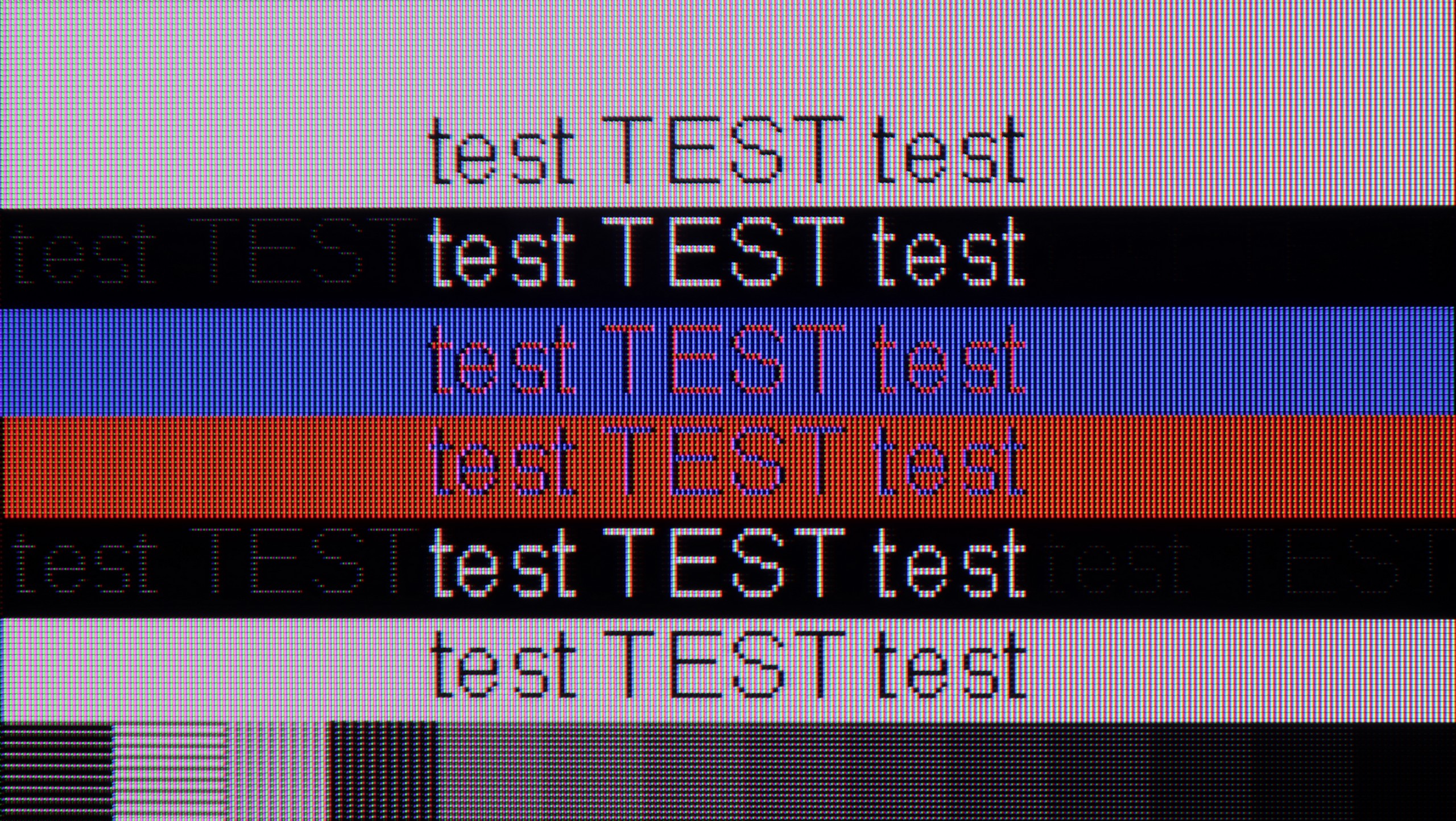
Samsung S85D performs very well as a computer monitor. Thanks to the clear visibility of text, regardless of the type of background, using it is convenient and comfortable. The support for 4:4:4 chroma ensures precise rendering of text and graphics, which is important for office work, browsing the internet, or editing documents. Samsung S85D is a versatile television that also easily serves as a monitor for everyday use. We deducted 0.4 points for the WRGB layout, as is the case with any television with such a sub-pixel arrangement.
A new feature of this year's model is the full support for 144 Hz refresh rates, which PC gamers will appreciate. The QNED93A works with both Nvidia graphics cards, offering compatibility with G-Sync, as well as with AMD products, where it operates with FreeSync Premium Pro. As a result, gameplay is smooth, without stuttering or tearing, and the panel itself performs very well in dynamic esports titles and demanding AAA productions.
Equally important is the clarity of the image for daily work. The television supports chroma 4:4:4, so fonts in Windows and applications are sharp and clear. However, we noticed a small detail – against a dark background with bright letters, subtle horizontal stripes may appear, resulting from the arrangement of subpixels. This is a minor detail that does not affect the convenience of using the television on a daily basis, but perfectionists might notice it after prolonged exposure to text. But we don’t think anyone would want to work on a 55-inch screen with text sitting less than 1 meter away from it 😉.
Viewing angles
7.7/10
2.9/10
The viewing angles on the Samsung S85D are excellent, as is fitting for an OLED. The image remains sharp and does not lose quality even when viewed from a wide angle, making the television perfect for larger rooms and watching together with family or friends. The only televisions that offer better viewing angles are those with QD-OLED or MLA OLED panels.
QNED93A uses a VA panel, which means one thing: the category of viewing angles becomes its Achilles' heel. Already at an angle of about 45 degrees, brightness drops by as much as 80%, and colours begin to noticeably fade. This is the natural price for the high contrast that VA panels offer. There is no additional coating to enhance angles here, as in some more expensive models, which is why the QNED93A performs best when viewed head-on. If you are planning a large family screening where some viewers will sit more to the side, you must take into account that the picture will not be as attractive as it is in the centre of the screen.
TV efficiency during daytime
5/10
6.2/10

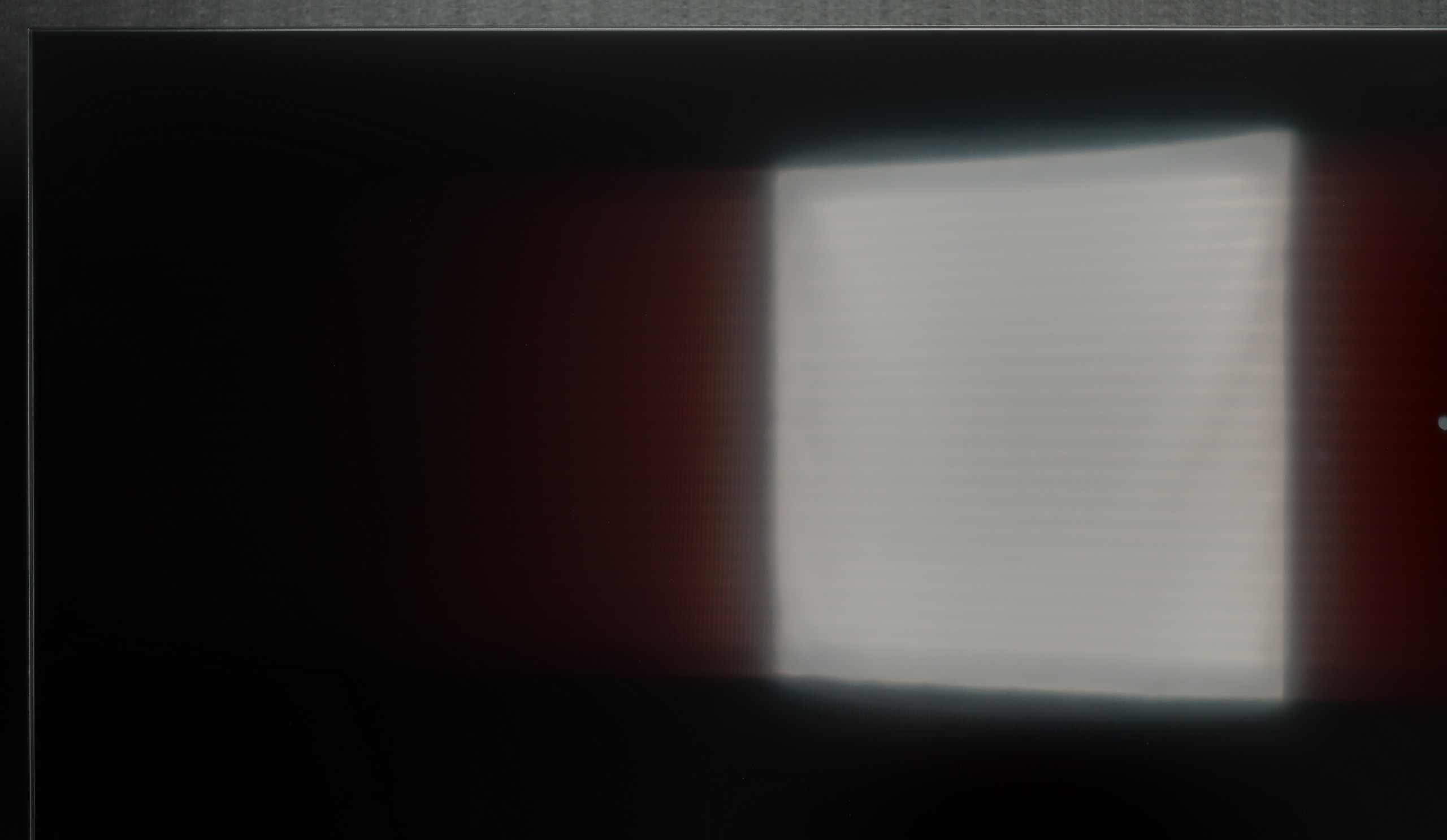

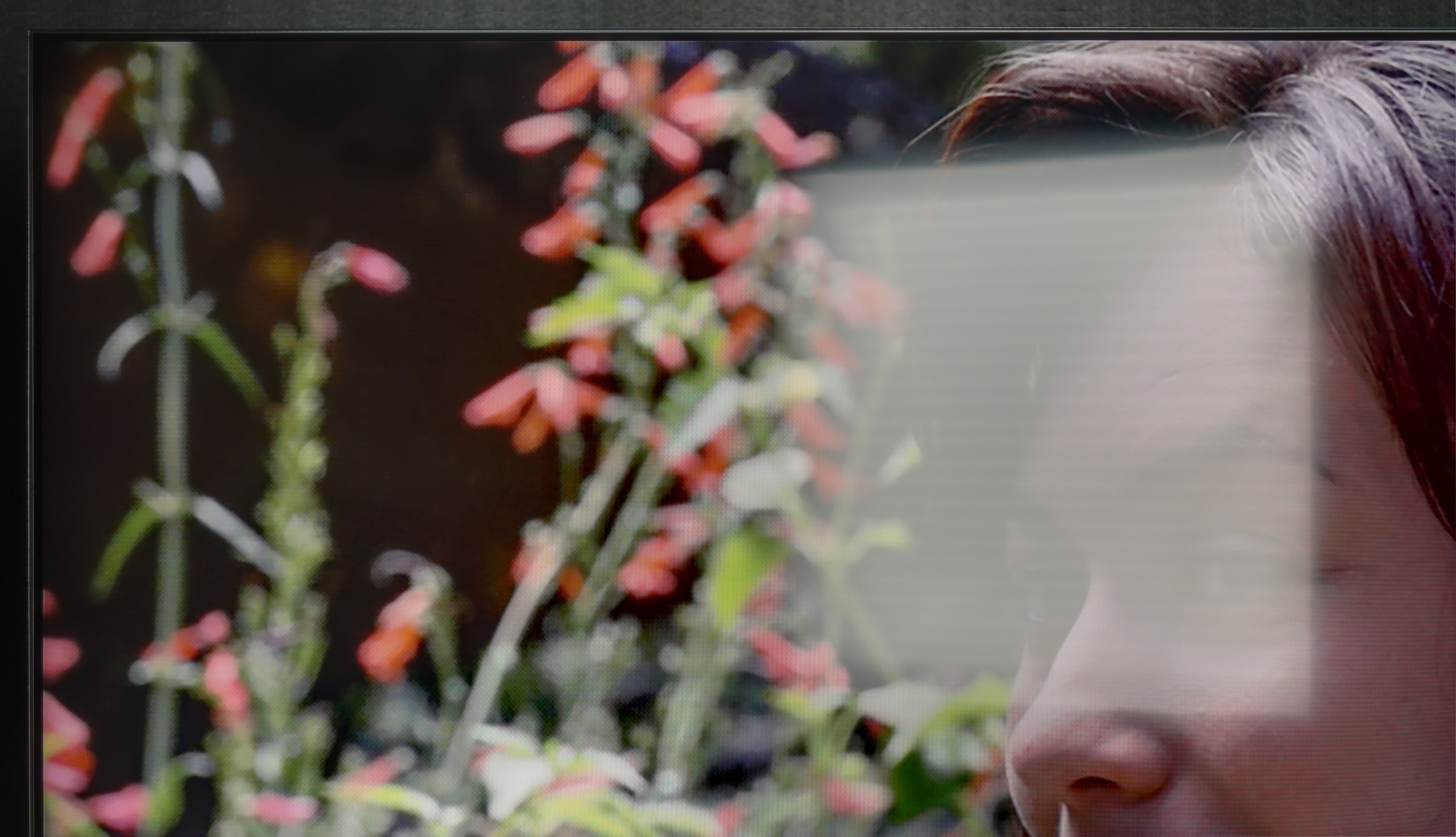
Matrix brightness
Average luminance SDR
LG QNED93A / QNED90A: 546 cd/m2
Samsung S85D: 313 cd/m2
Samsung S85D handles reflections quite well thanks to the satin finish of the panel, which effectively dampens them. Unfortunately, the SDR brightness of 310 nits is rather average, meaning that in very bright rooms, the TV's performance may be limited. This is not an impressive result, so this model will definitely perform better during evening viewing, when such brightness will be sufficient. During the day, to achieve better comfort, it may be necessary to draw the blinds or curtains.
LG QNED93A uses a satin matrix, which handles glare suppression moderately well. It is certainly not on the level of matte screens, but it does not have the mirror-like surface feel of models with a glossy finish. As a result, reflections are not overly distracting, and the colours maintain their intensity even when light from a window strikes the screen. The brightness also scores positively. The average level in HDR mode hovers around 550–600 nits. This means that the television performs well in well-lit rooms, allowing viewers to enjoy a film even during the day, with the blinds only partially drawn. In the role of a large screen in the living room, the QNED93A performs quite well.
Details about the matrix
Subpixel Structure:

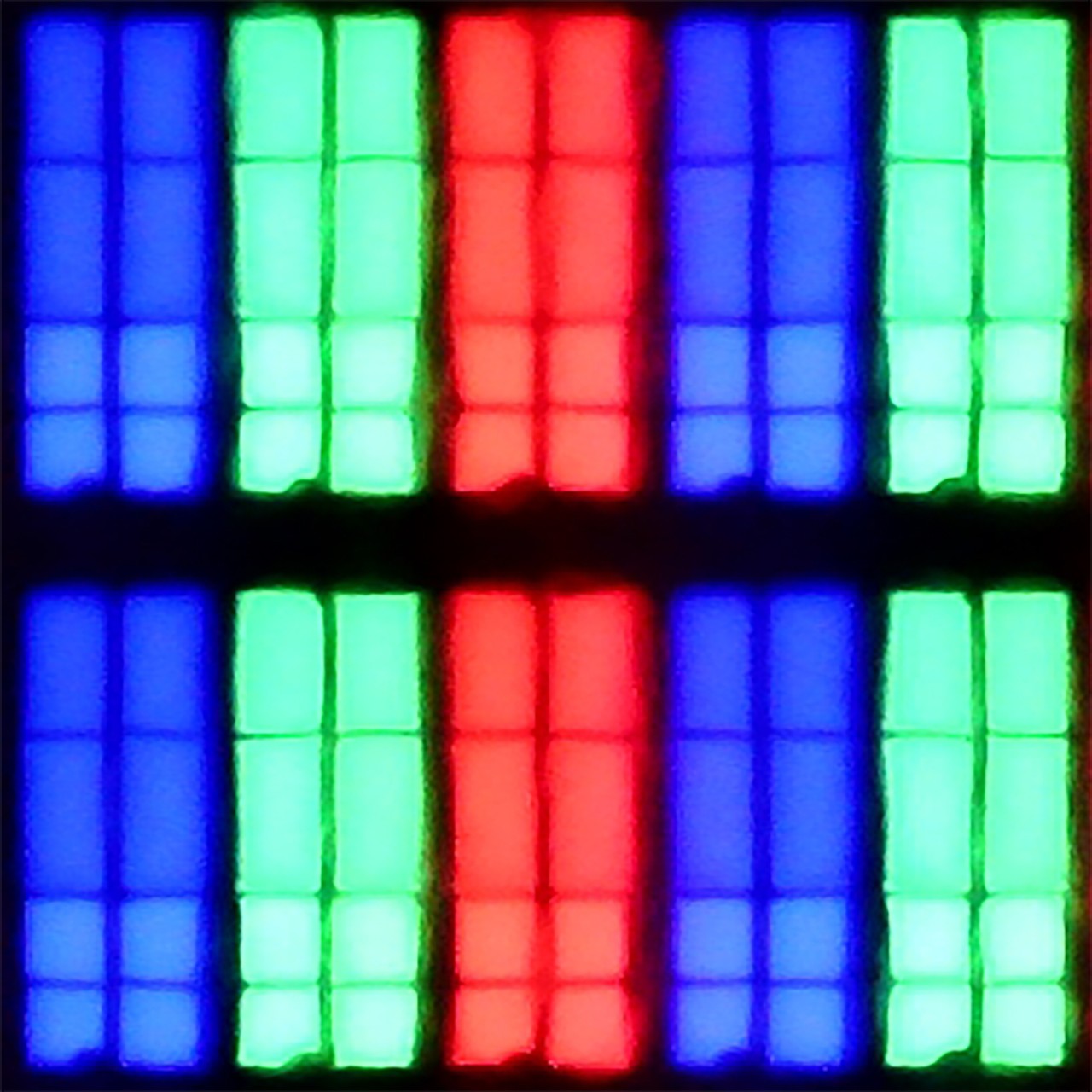
Panel uniformity and thermal imaging:

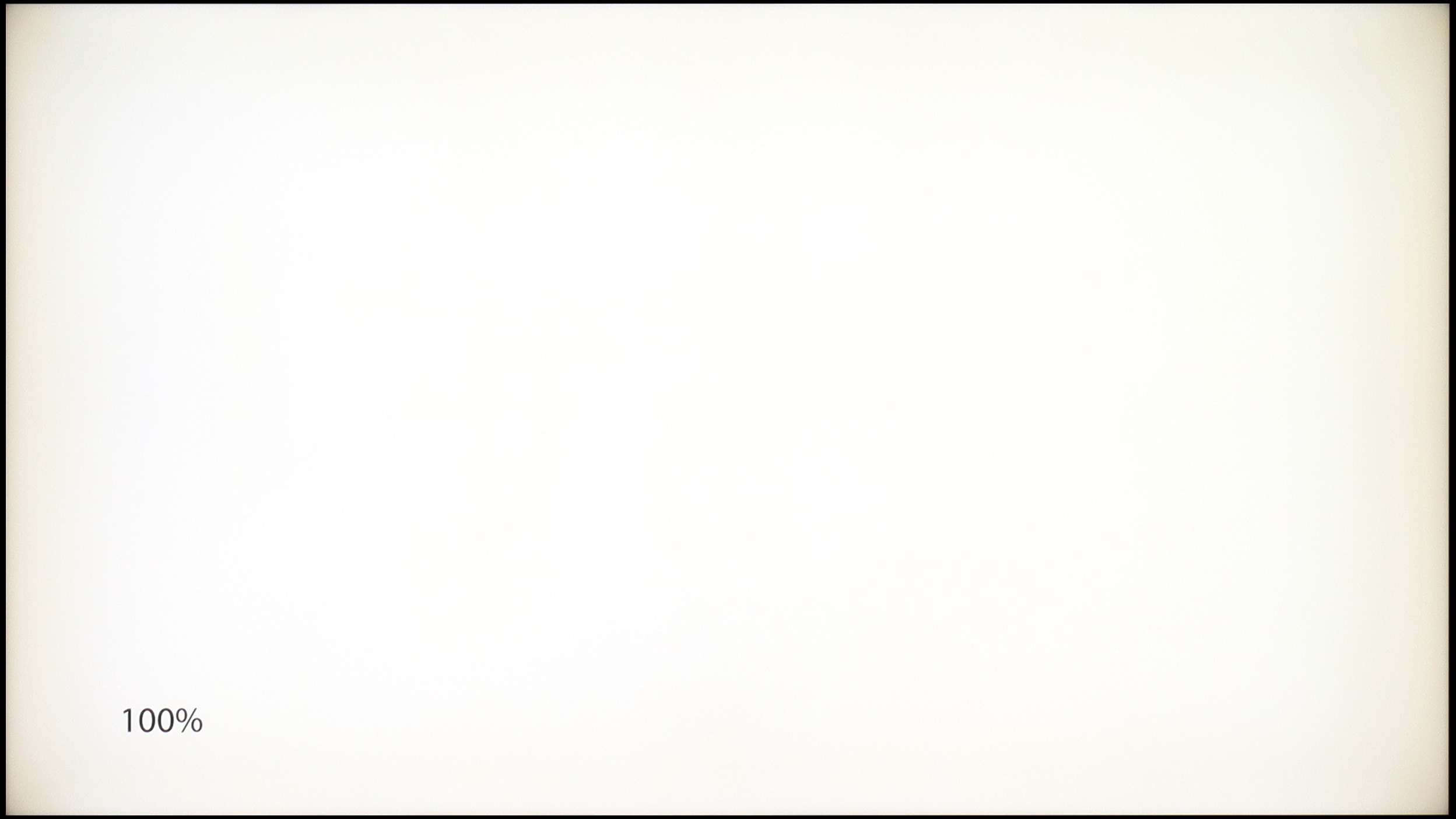
Samsung S85D
LG QNED93A / QNED90A
TV features
7.4/10
8.2/10
- HDMI inputs0 x HDMI 2.0, 4 x HDMI 2.1 48Gbps0 x HDMI 2.0, 4 x HDMI 2.1 48Gbps
- OutputsToslink (Optical audio), eARC (HDMI), ARC (HDMI)Toslink (Optical audio), eARC (HDMI), ARC (HDMI)
- Network InterfacesWi-Fi 2.4GHz, Wi-Fi 5GHz, Ethernet (LAN) 100MbpsWi-Fi 2.4GHz, Wi-Fi 5GHz, Ethernet (LAN) 100Mbps
- TV receptionDVB-T, DVB-T2, DVB-S, DVB-S2, DVB-CDVB-T, DVB-T2, DVB-S, DVB-S2, DVB-C
Classic features:
- Recording to USB (terrestrial TV)
- Recording programming
- Picture in Picture (PiP)
- RF remote control (no need to aim at the screen)
- Backlit remote control
- Teletext
- Audio only mode
- Bluetooth headphones support
- Simultaneous Bluetooth headphones & TV audio
Smart features:
- AirPlay
- Screen mirroring (Windows Miracast)
- Voice search
- Voice search in native language
- Ability to connect a keyboard and mouse


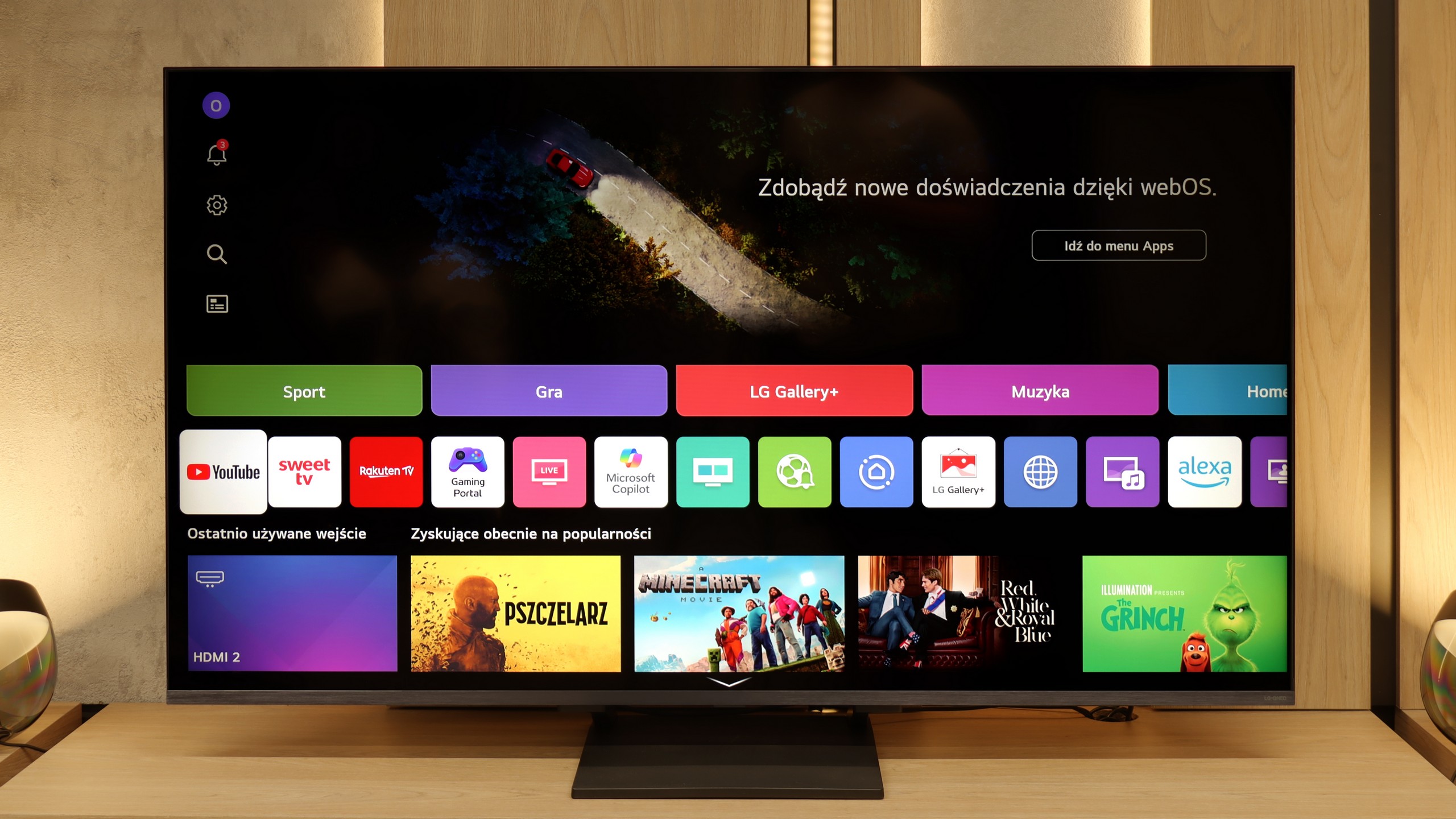
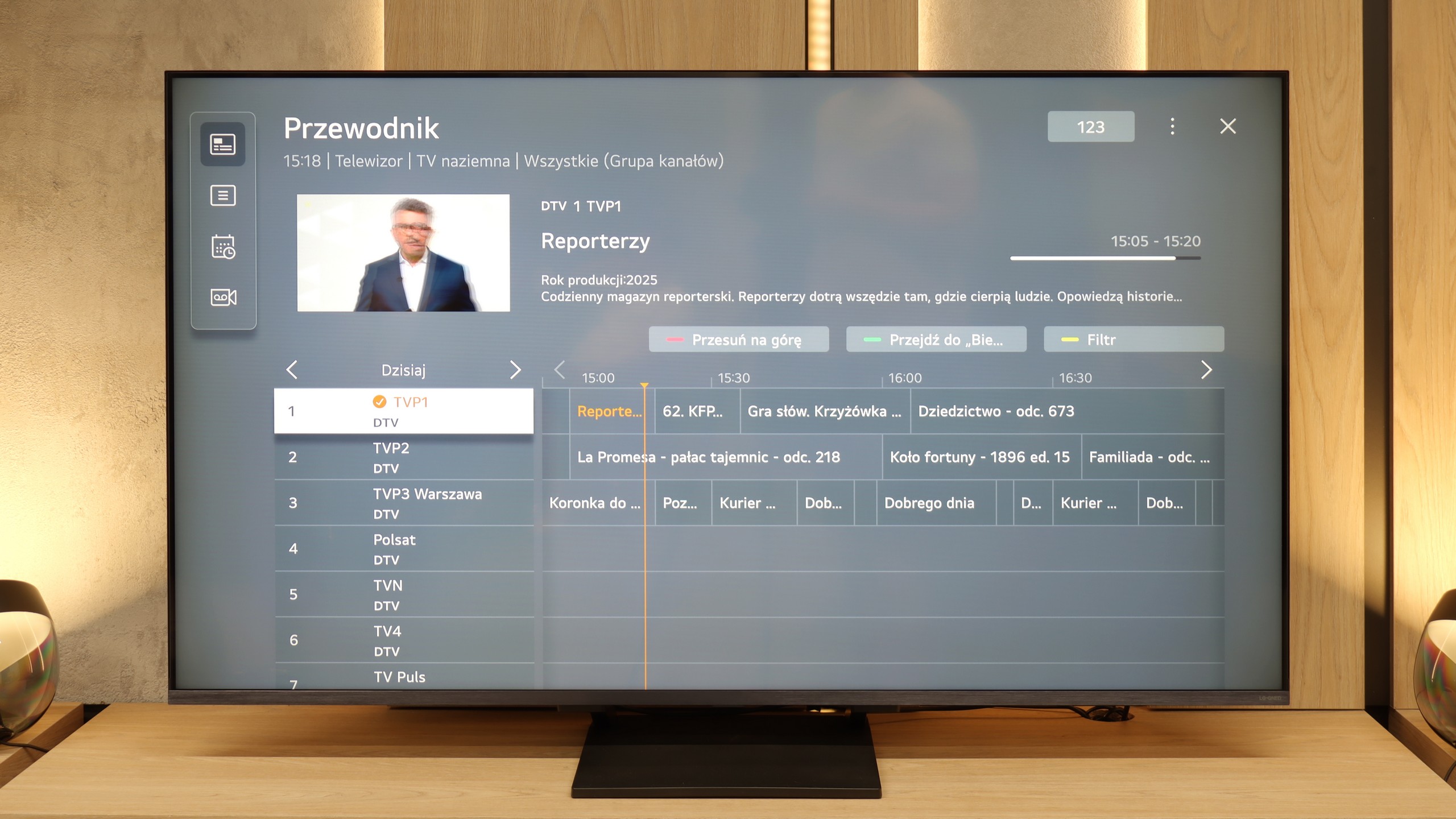
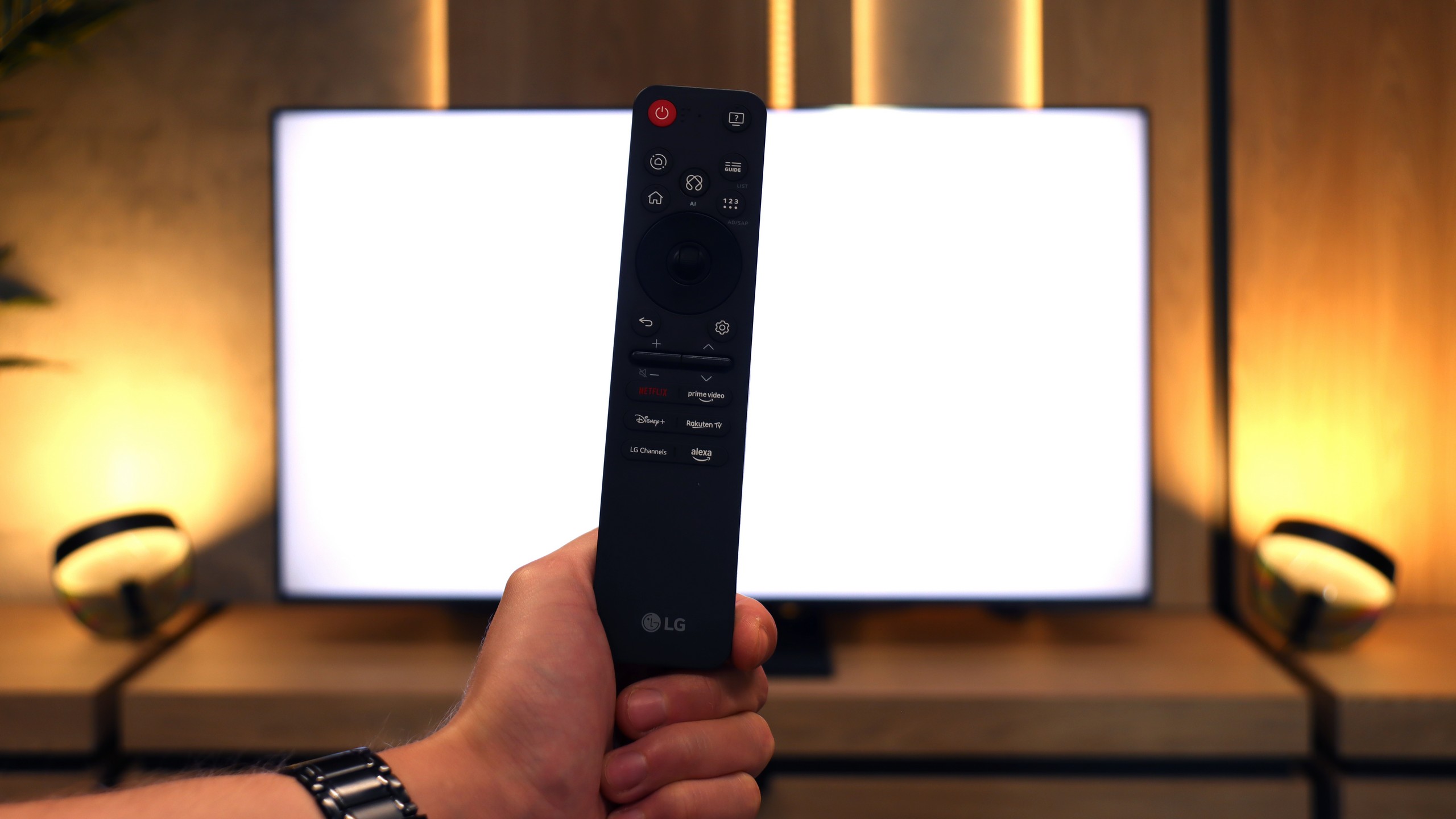
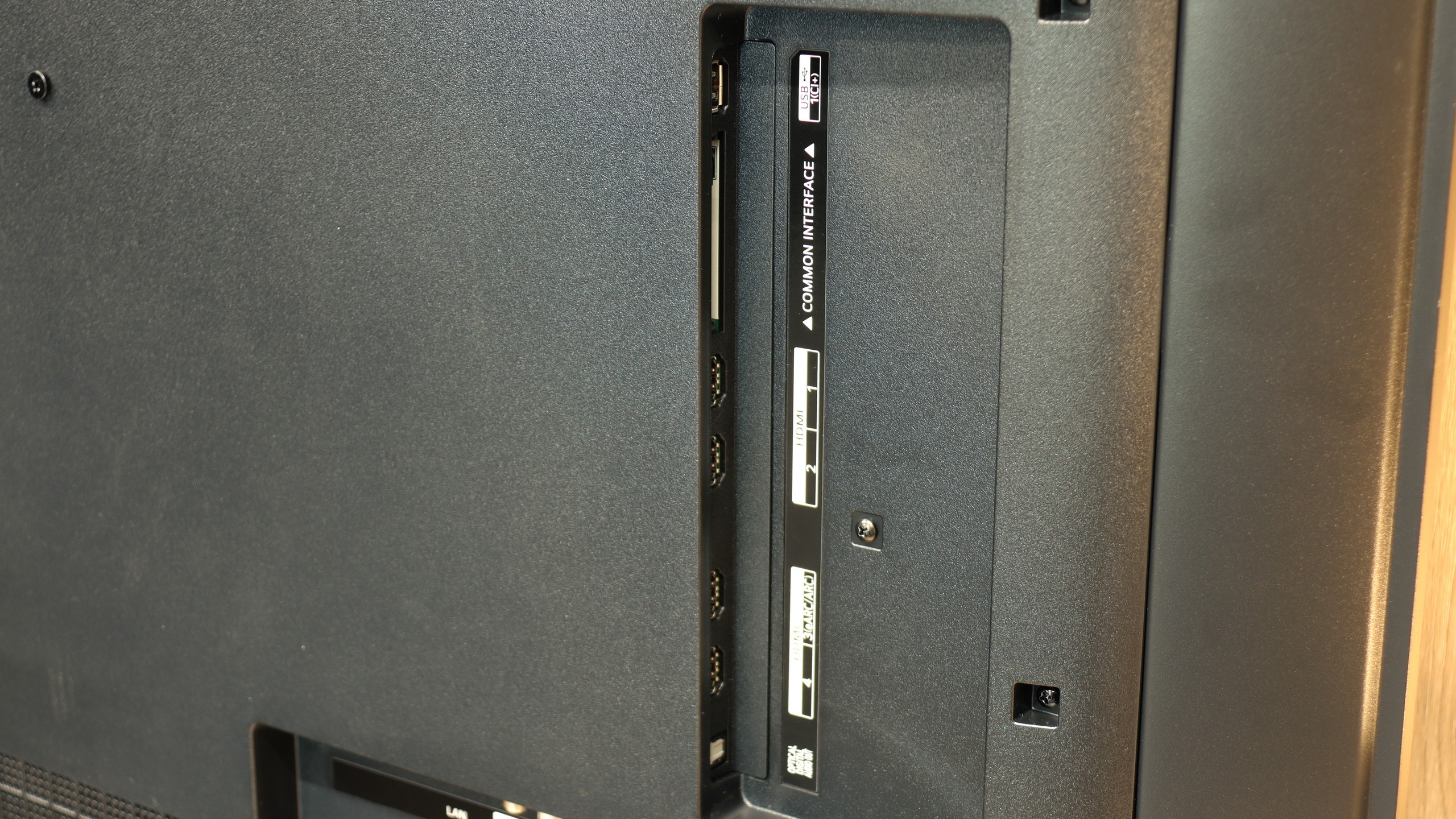
Samsung S85D operates on the Tizen operating system, which is intuitive and provides easy access to numerous applications and streaming services. The system offers smooth and quick navigation, significantly enhancing the comfort of using the television. The television is equipped with a solar remote control that allows the operation of other devices, such as set-top boxes or home theatre systems, enabling control of all home equipment with a single device. In terms of connectivity, the Samsung S85D supports AirPlay, facilitating content sharing from Apple devices, and includes a built-in Bluetooth module, allowing for the connection of peripheral devices such as keyboards, headphones, or speakers.
When it comes to everyday use of the television for regular TV, the S85D model offers several useful features but also has certain shortcomings. One of its advantages is the PIP (Picture-in-Picture) function, which allows simultaneous viewing of two content sources – for example, a match in a small window while the rest of the screen displays a favourite series. This is a convenient solution for those who want to stay updated with various programmes. However, the lack of recording capabilities from the built-in tuners is disappointing. This limitation means that favourite programmes or films cannot be saved for later, which may be an issue for those who wish to flexibly adjust their TV viewing to their schedule – however, we believe that the absence of this feature is becoming increasingly less burdensome, as users currently have wide access to various online content, making the need for recording less significant.
The design of the OLED Samsung S85D is distinguished by its characteristic rounded shape at the back, setting it apart from most OLED televisions, which typically have a flat rear. This unconventional design gives it a unique appearance and attracts attention, resulting in a television that looks modern and elegant. The package includes a remote control, a CI+ module, a stand in the form of two legs, and a power cable, allowing for a quick and convenient start to using the television without the need to purchase additional accessories.
Smart Features
The QNED93A runs on webOS, which is one of the most enjoyable Smart TV systems. It comes with AirPlay, Screen Mirroring, Chromecast, and convenient voice control. The platform is quite clear and mostly fast, although in the tested unit, there were instances where the response to pressing the remote control required a moment of "thought". However, it's hard to consider this a serious issue – webOS still remains a refined system and will likely receive further updates that will enhance it even more.
Classic Features
In this model, LG has not included the old Magic remote with a numeric keypad, but the television itself performs excellently as a screen for everyday viewing of channels from the antenna. The EPG interface is readable, the television offers a TV guide, and we have the ability to record programmes from the built-in tuners directly onto a USB stick. Everything works correctly and intuitively. We only missed the PiP feature, which in 2025 is offered by just two manufacturers.
Magic Remote
The Magic remote is still the biggest difference compared to competitors. In 2025, it underwent a slight facelift – it has fewer buttons and resembles the minimalist remotes from Samsung. However, the cursor remains key, functioning like a magic wand. Just move your hand, and the pointer on the screen follows your movement. It's incredibly simple, yet very convenient. Navigation in the menu or entering passwords is much faster, and it's difficult to then switch back to traditional buttons.
Playing files from USB
9.1/10
8.8/10
Supported photo formats:
Maximum photo resolution:

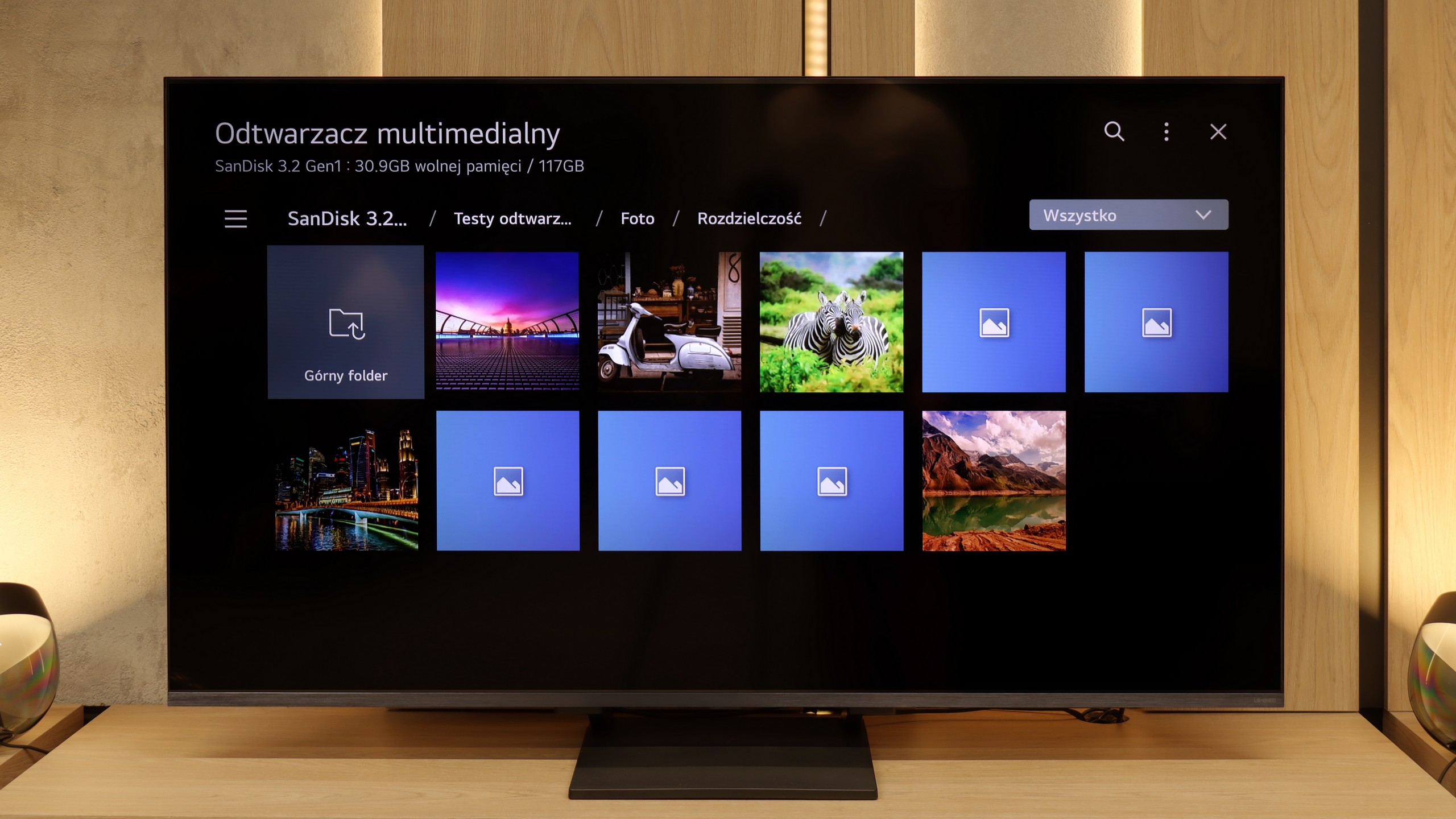
Playing multimedia files on the Samsung S85D will satisfy most users. The television offers wide compatibility with popular video, audio, and image file formats, ensuring smooth playback from both USB drives and the local network. The built-in media player operates efficiently and is user-friendly, although there may be issues with some less common formats.
The built-in media player in the LG QNED93A handles most popular video and audio formats without any issues, so it is quite sufficient for basic use. However, during testing, we noticed two minor oversights. The first is the lack of support for HEIC files, which is Apple's photo format. The manufacturer claims that the television should be able to open them, but in practice, we were unable to confirm this. The second issue concerned text files with subtitles in TXT format. Fortunately, the other more common subtitle formats worked without any problems, so it's hard to consider this a real limitation in everyday use.
Apps
8.7/10
9.1/10














































Sound
7/10
6.9/10
- Maximum volume-81dB
- Dolby Digital Plus 7.1
- Dolby True HD 7.1
- Dolby Atmos in Dolby Digital Plus (JOC)
- Dolby Atmos in Dolby True HD
- DTS:X in DTS-HD MA
- DTS-HD Master Audio
Samsung S85D OLED offers quite decent sound, although the built-in speaker set is not particularly impressive (2x10W). The television supports Dolby Atmos technology, which provides spatial sound, however, it does not support the DTS format. The sound is clear and sufficient for everyday use, although for more demanding users, it may be advisable to connect an external audio system to achieve a fuller and more dynamic sound.
The LG QNED93A sounds quite pleasant for built-in speakers in a television. The sound quality is fairly clear, and at medium volume levels, vocals and dialogues come across clearly. The bass, as is often the case in relatively slim designs, is not the strongest, but its presence can be heard and is entirely sufficient for everyday viewing of series. The maximum volume reaches around 81 dB and does not lead to strong distortions, although during more demanding cinematic scenes, it's evident that the system has its limitations. Overall, the sound can be described as decent and not off-putting. It certainly won't compete with a soundbar, but it won't ruin your film experience either.
Acoustic Measurements
No acoustic data
81dBC (Max)
75dBC


